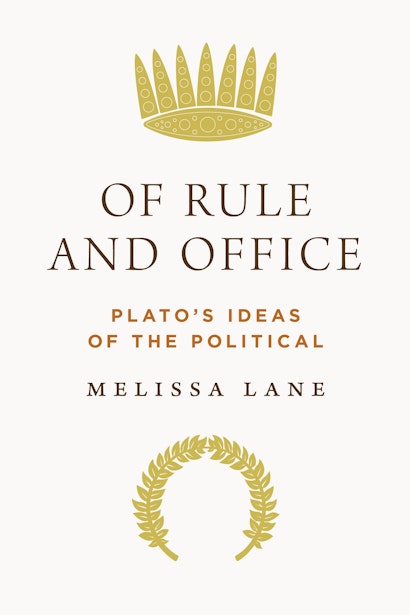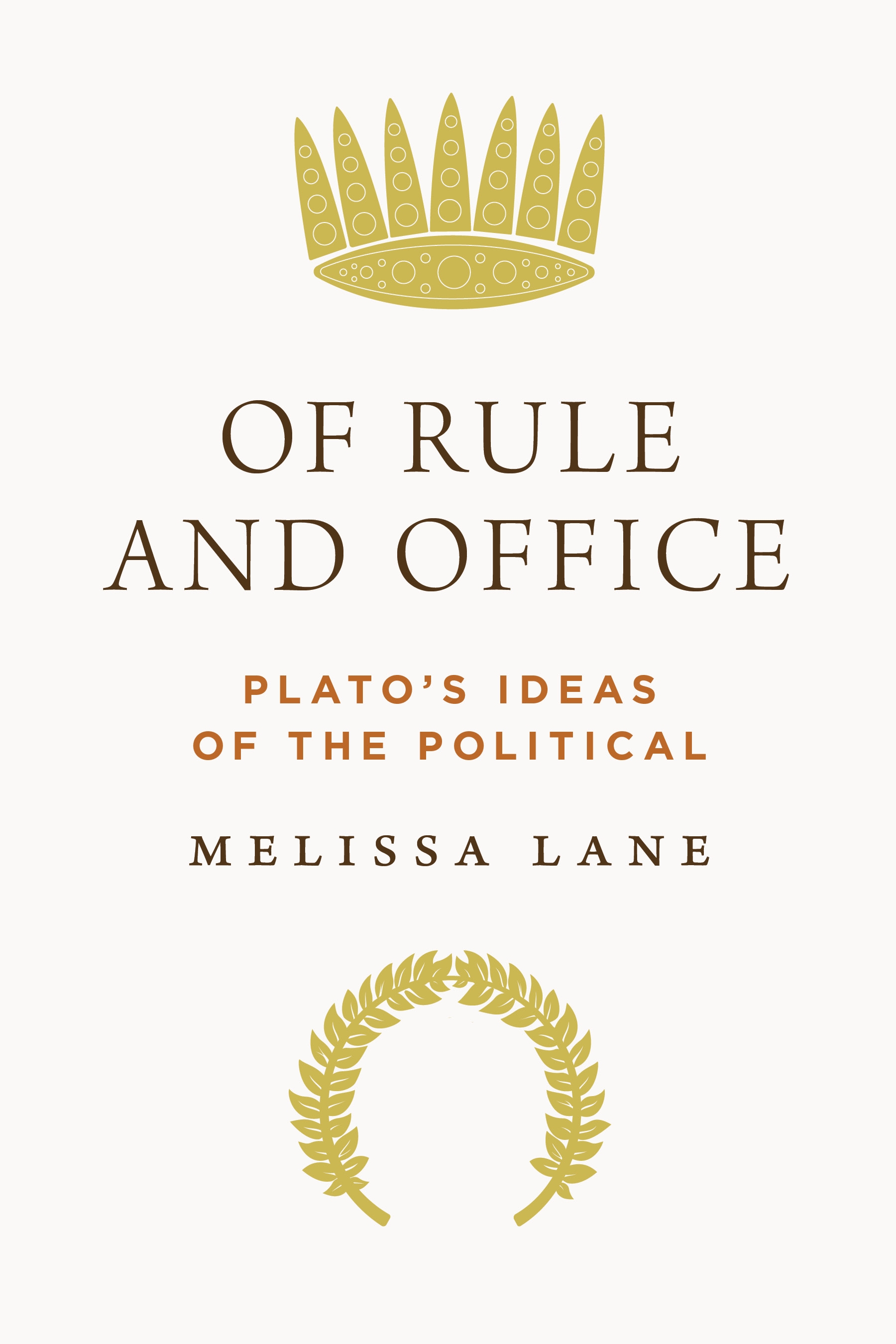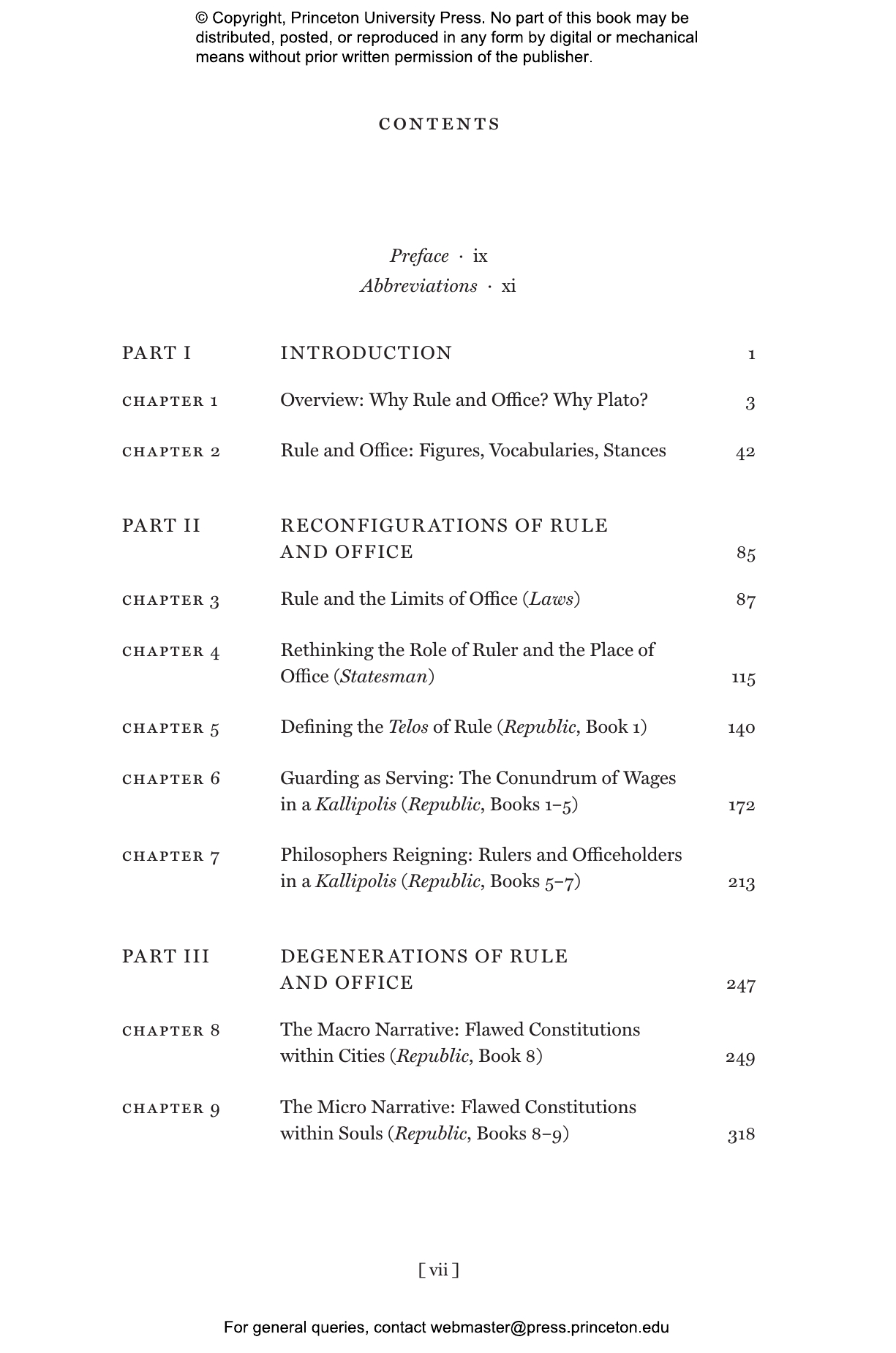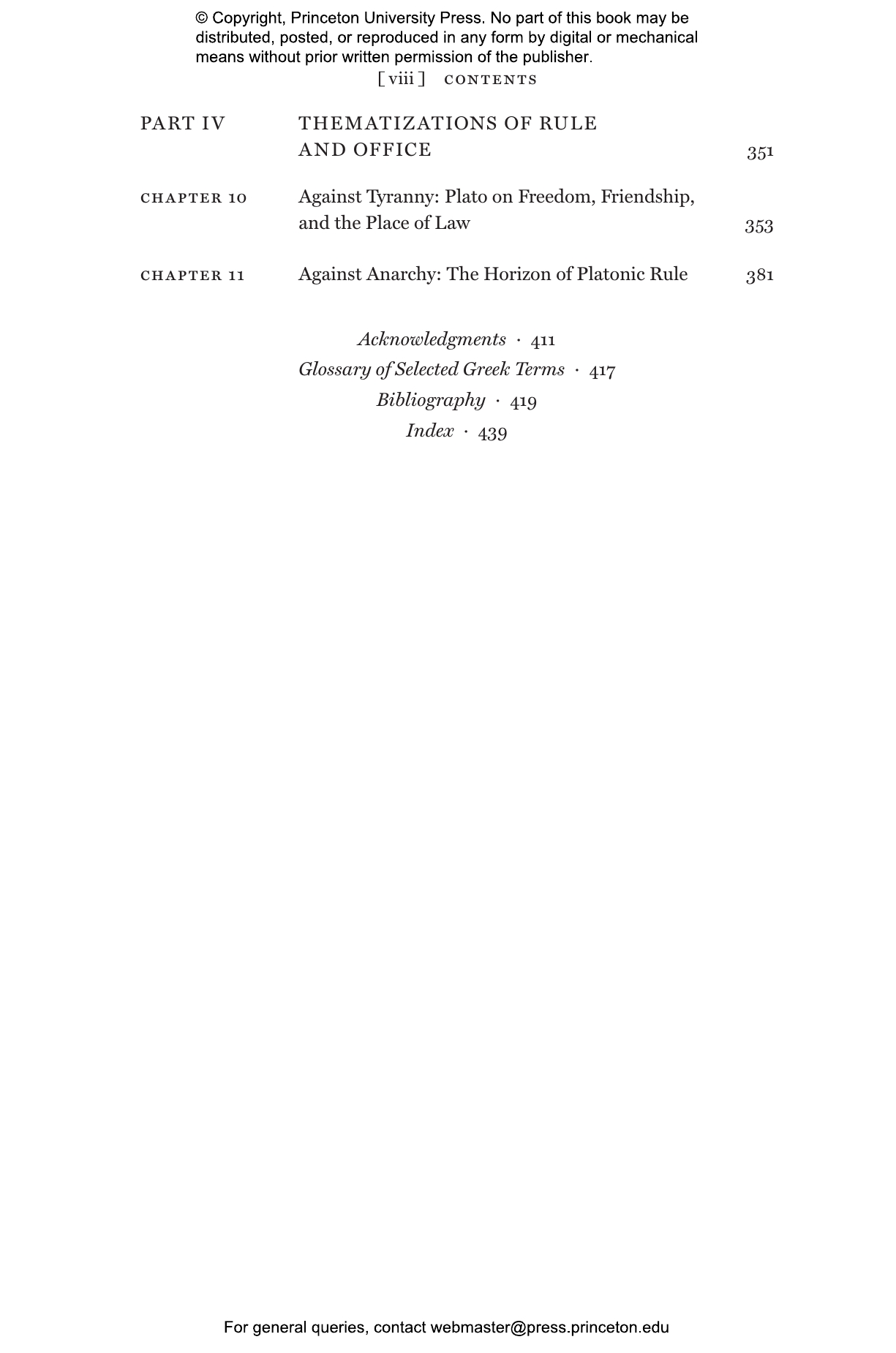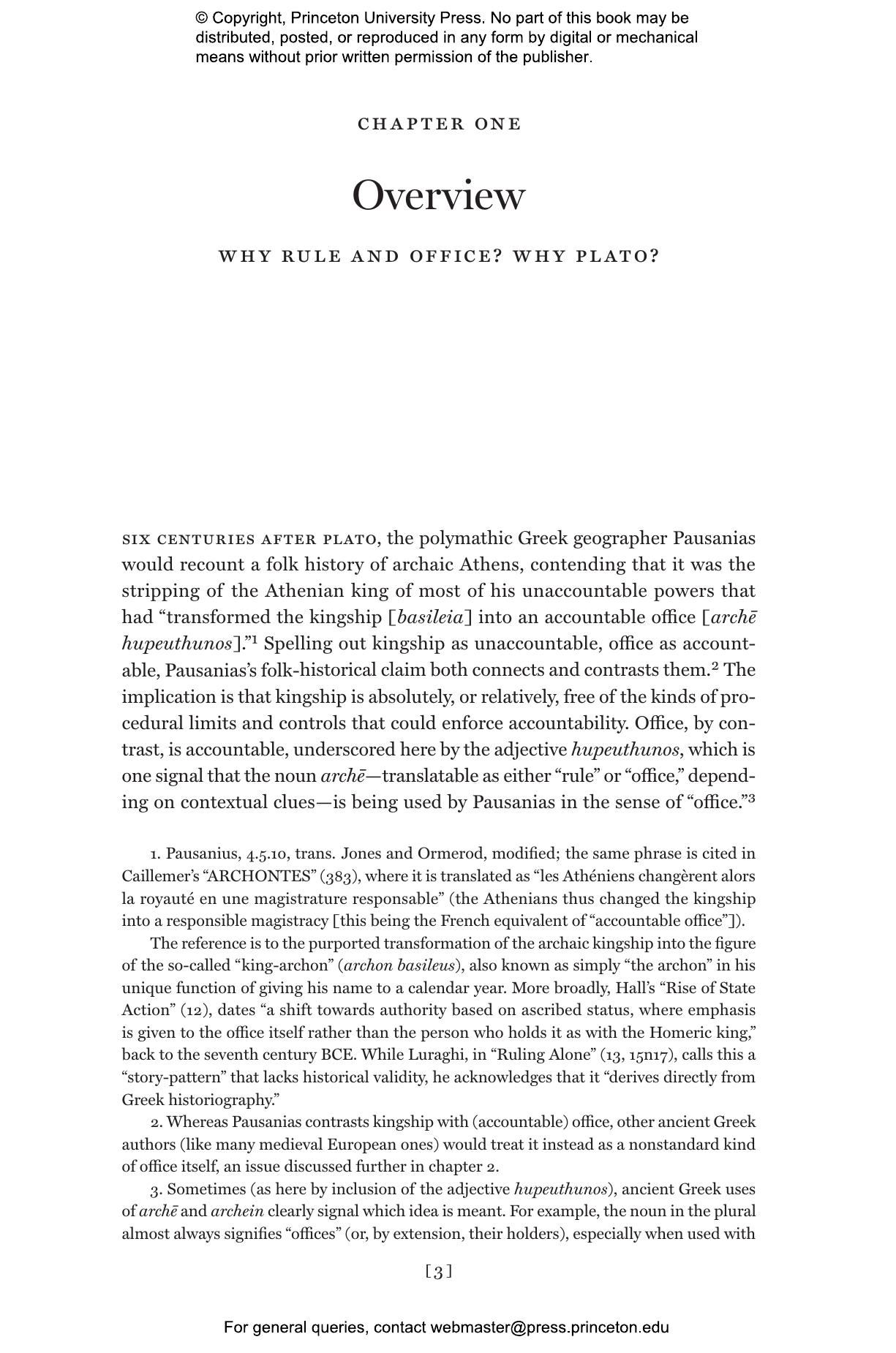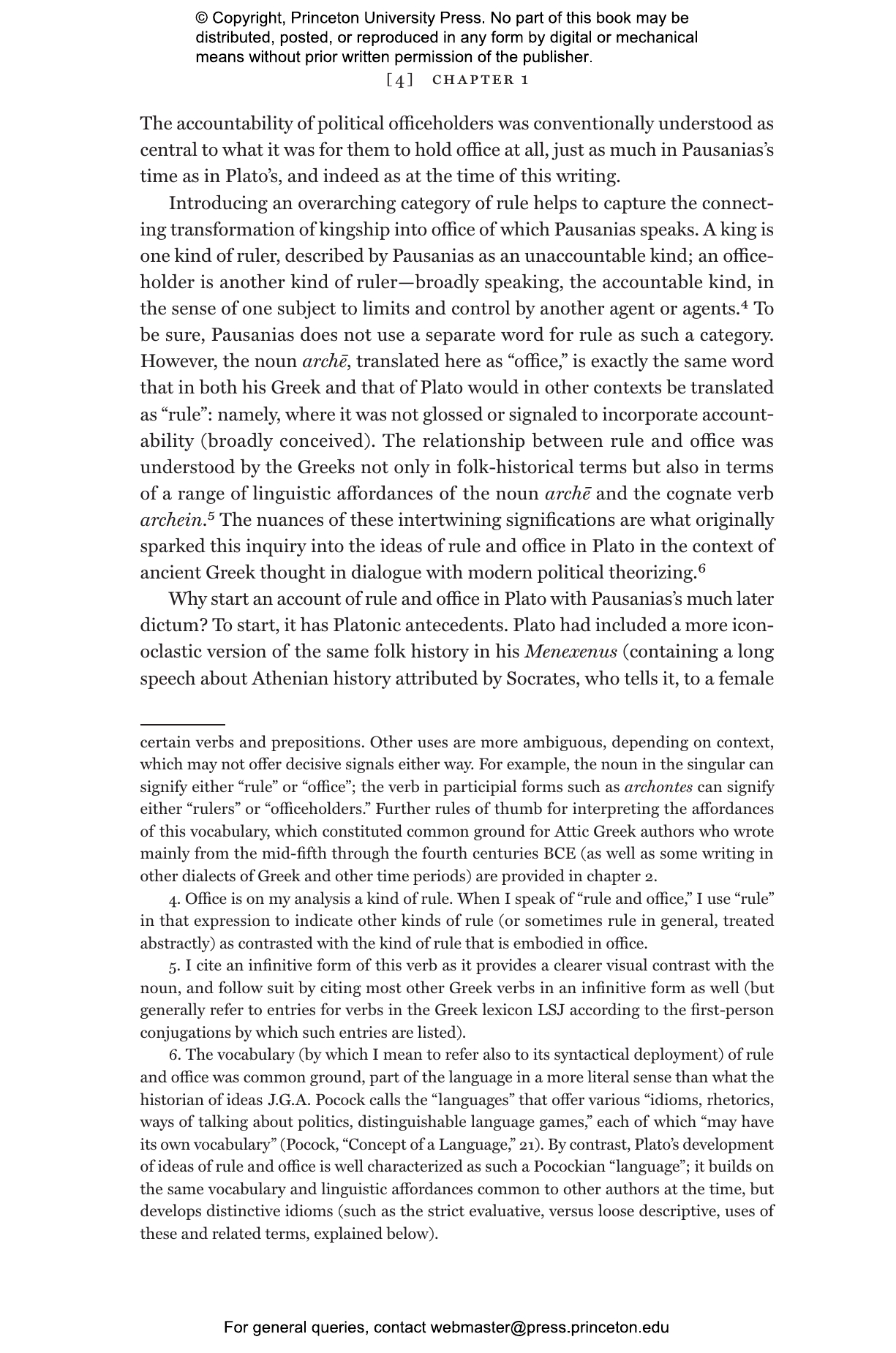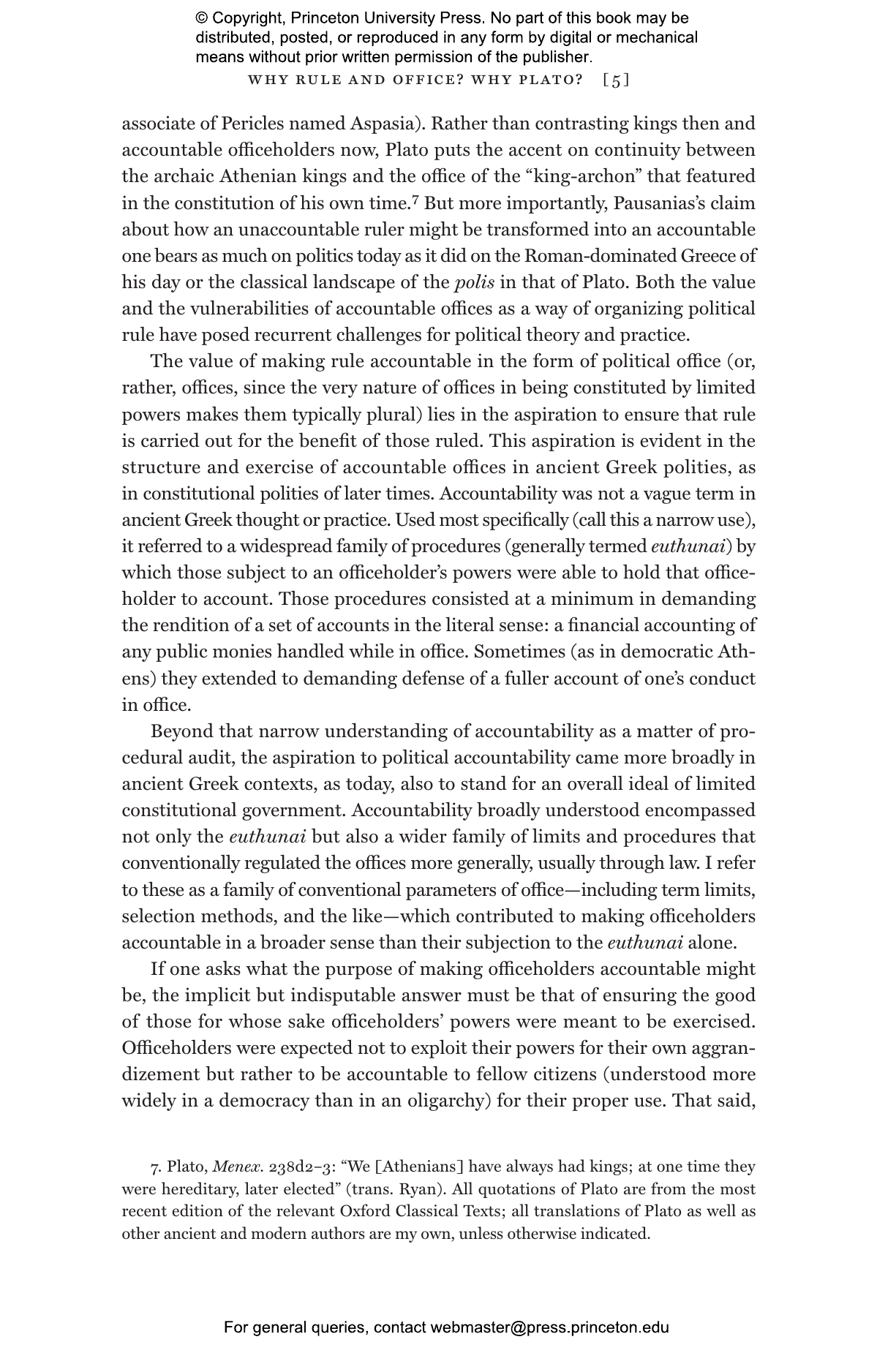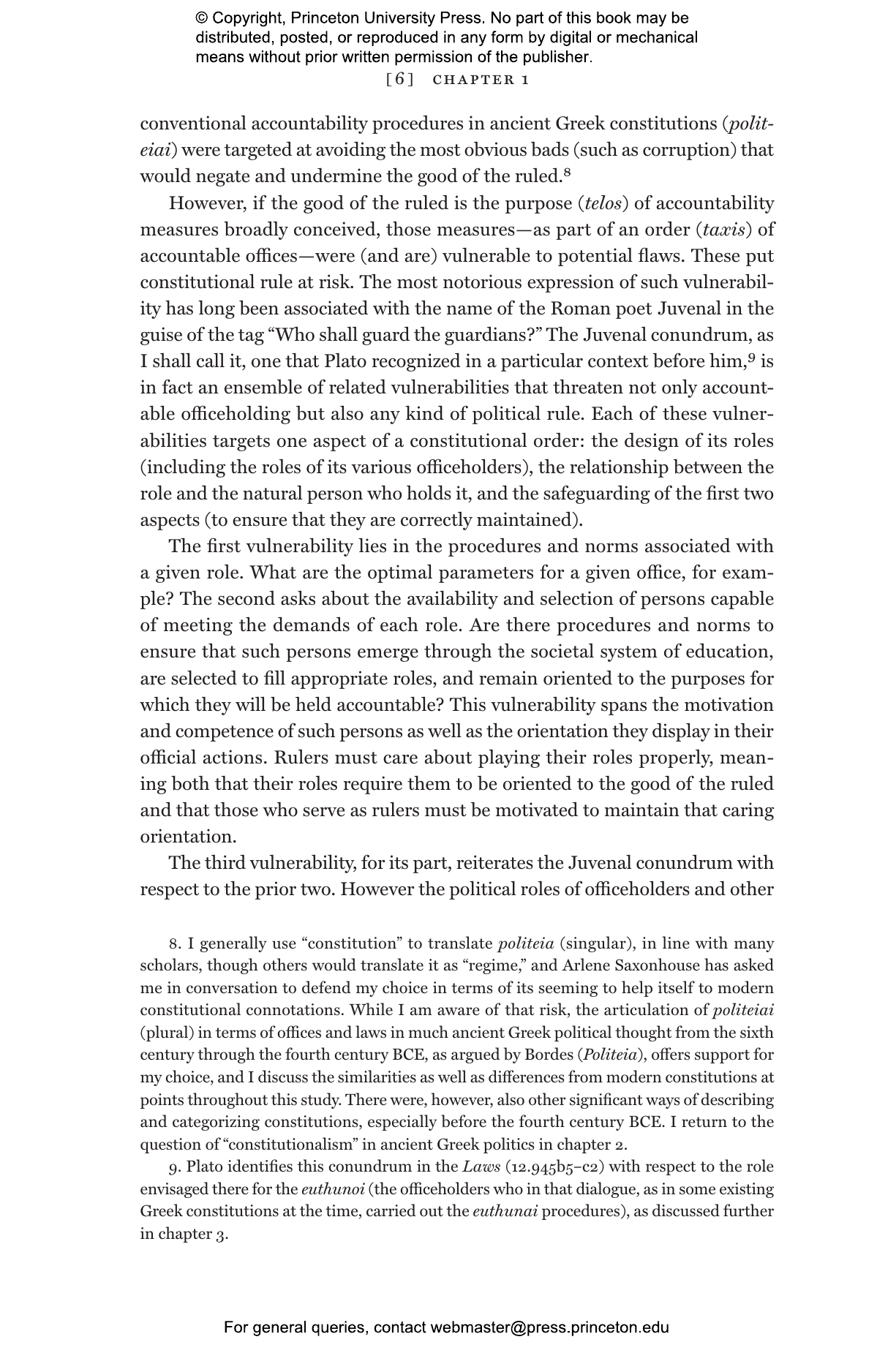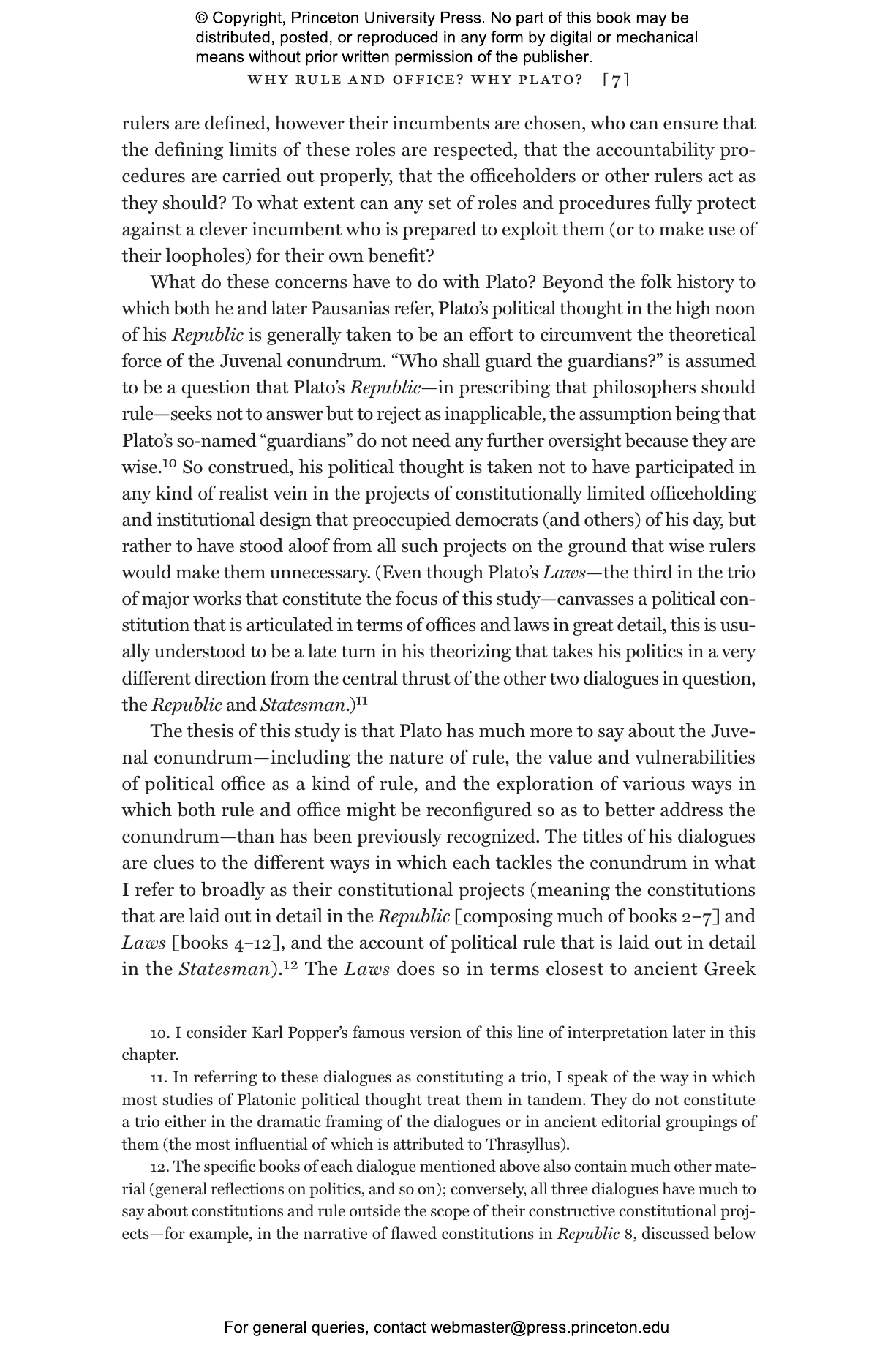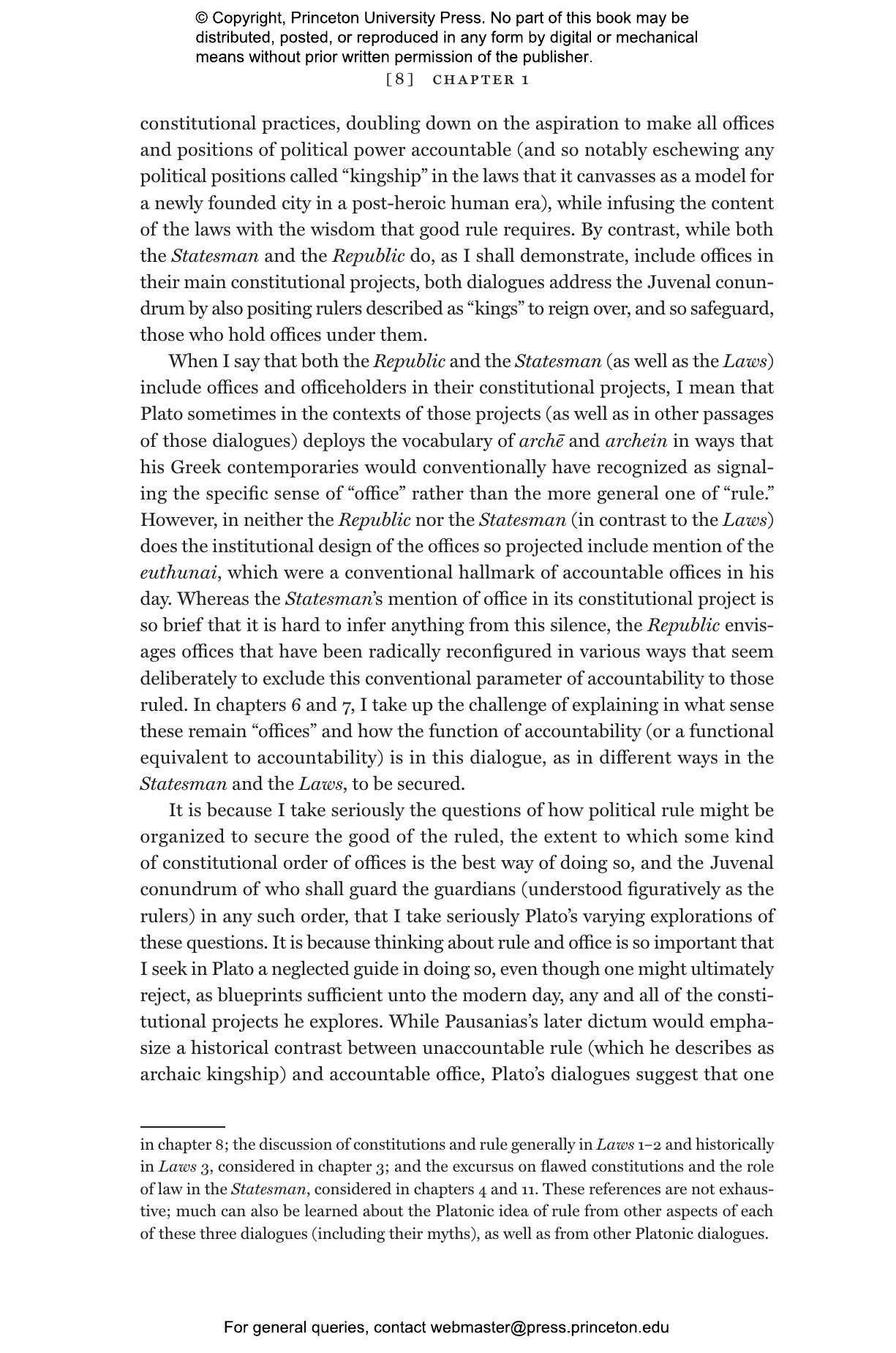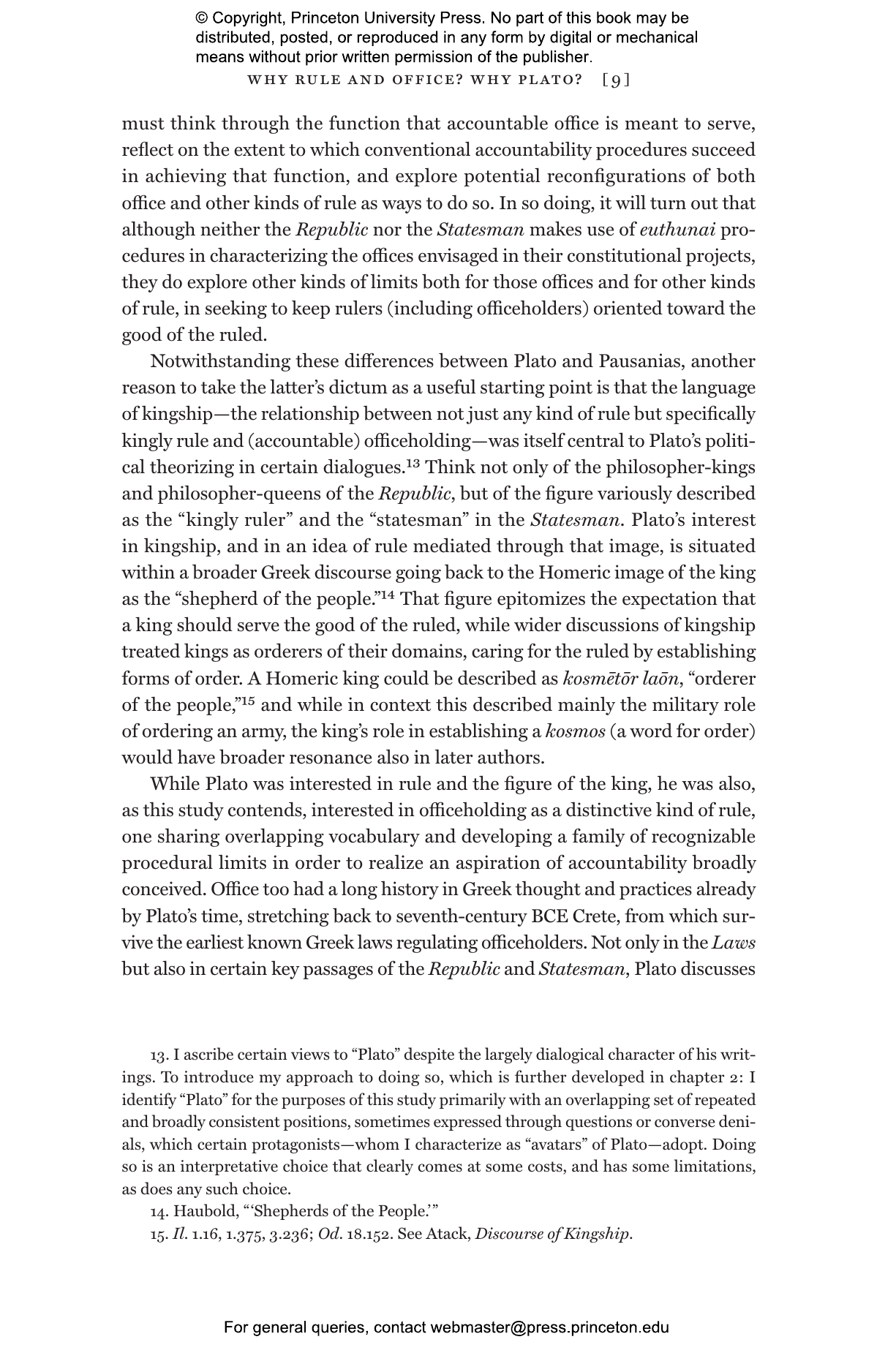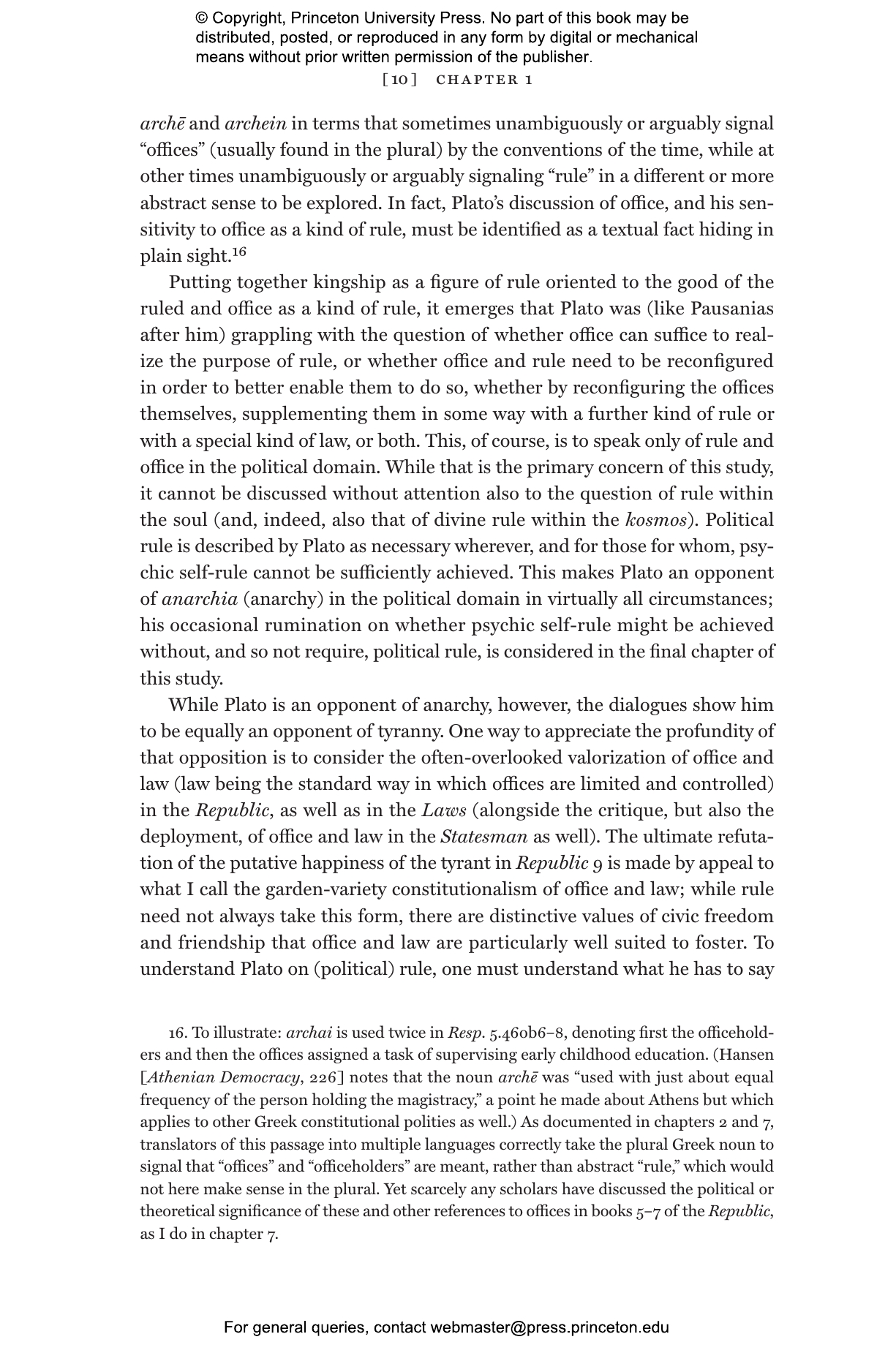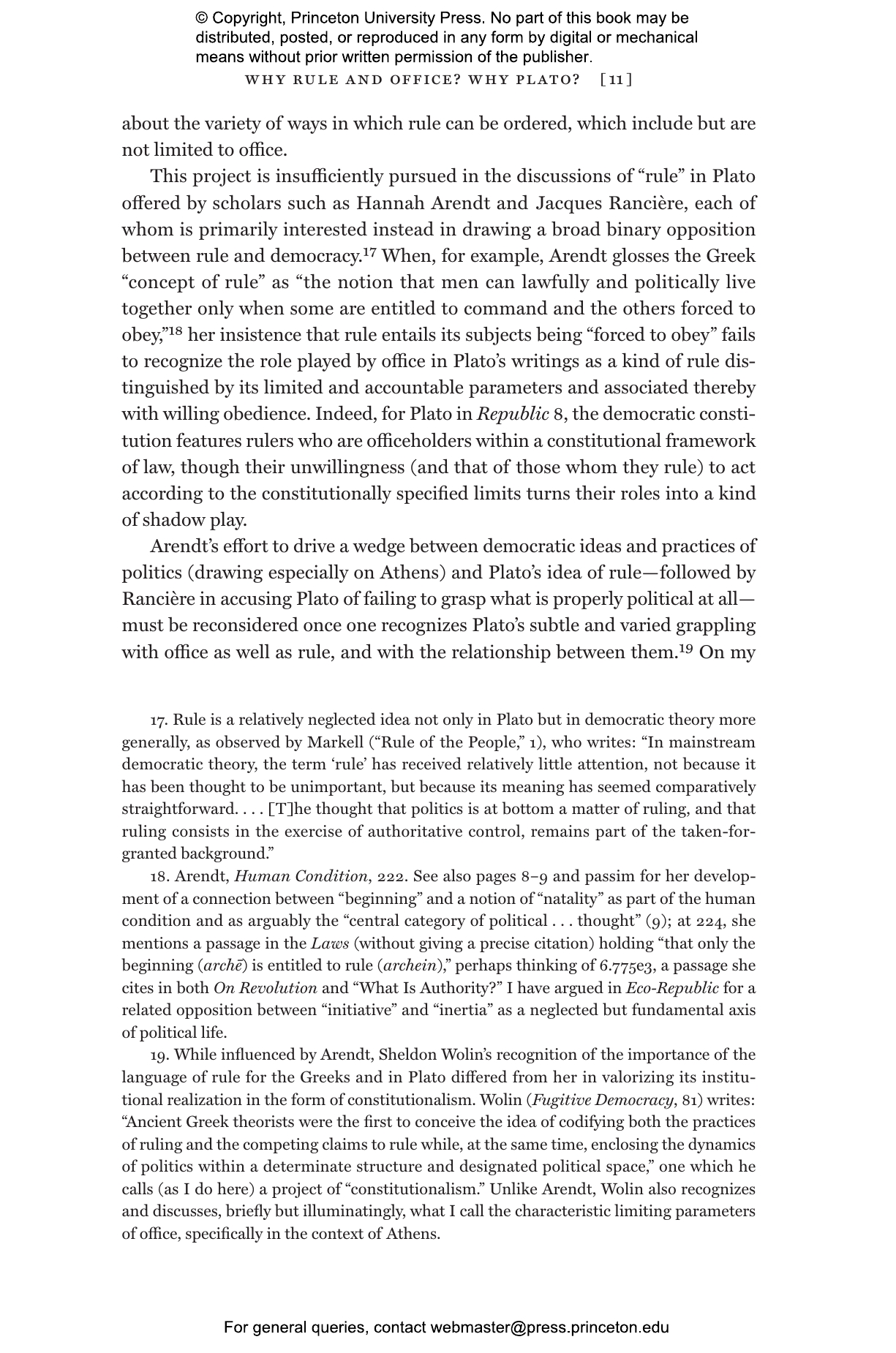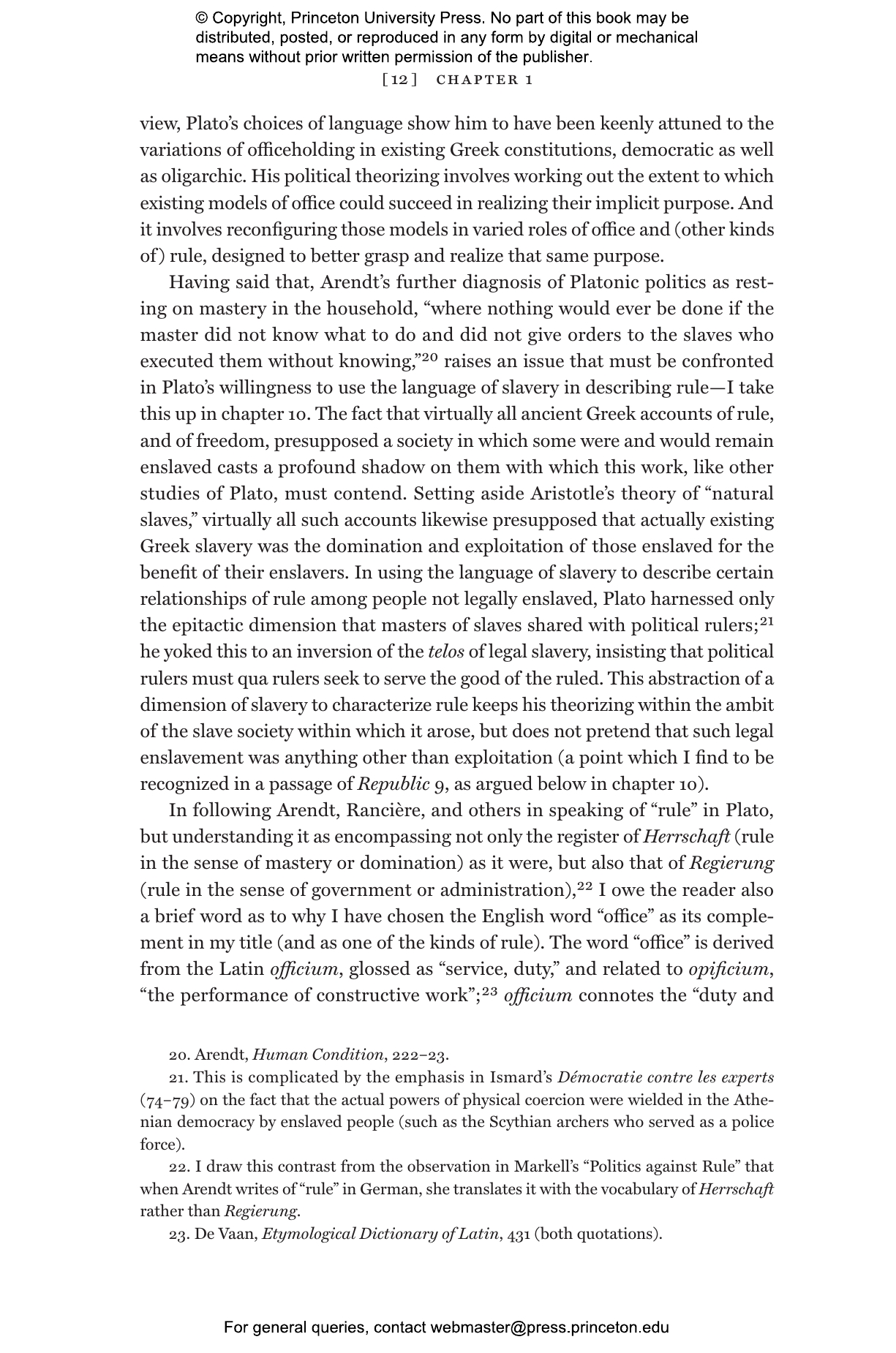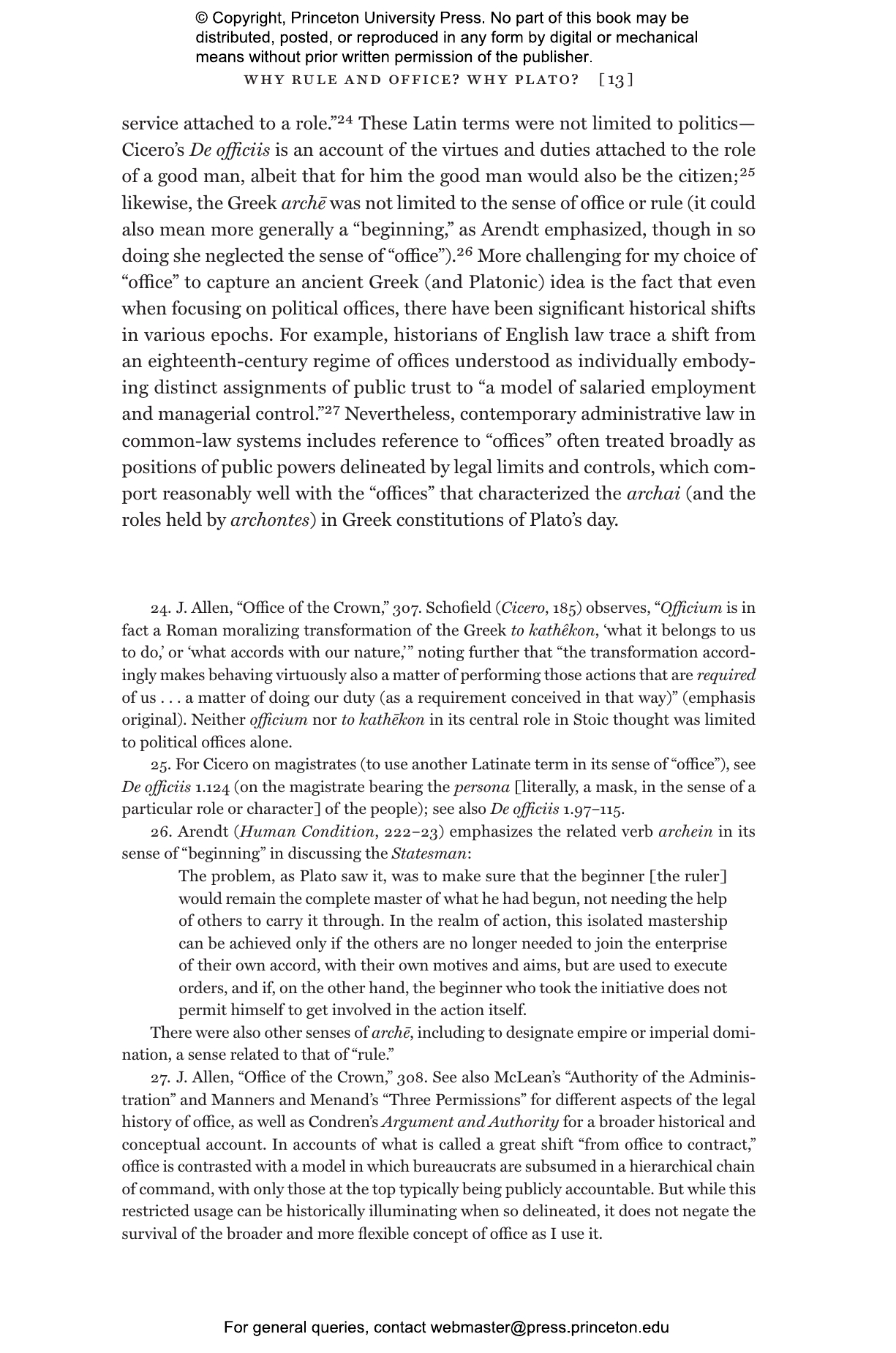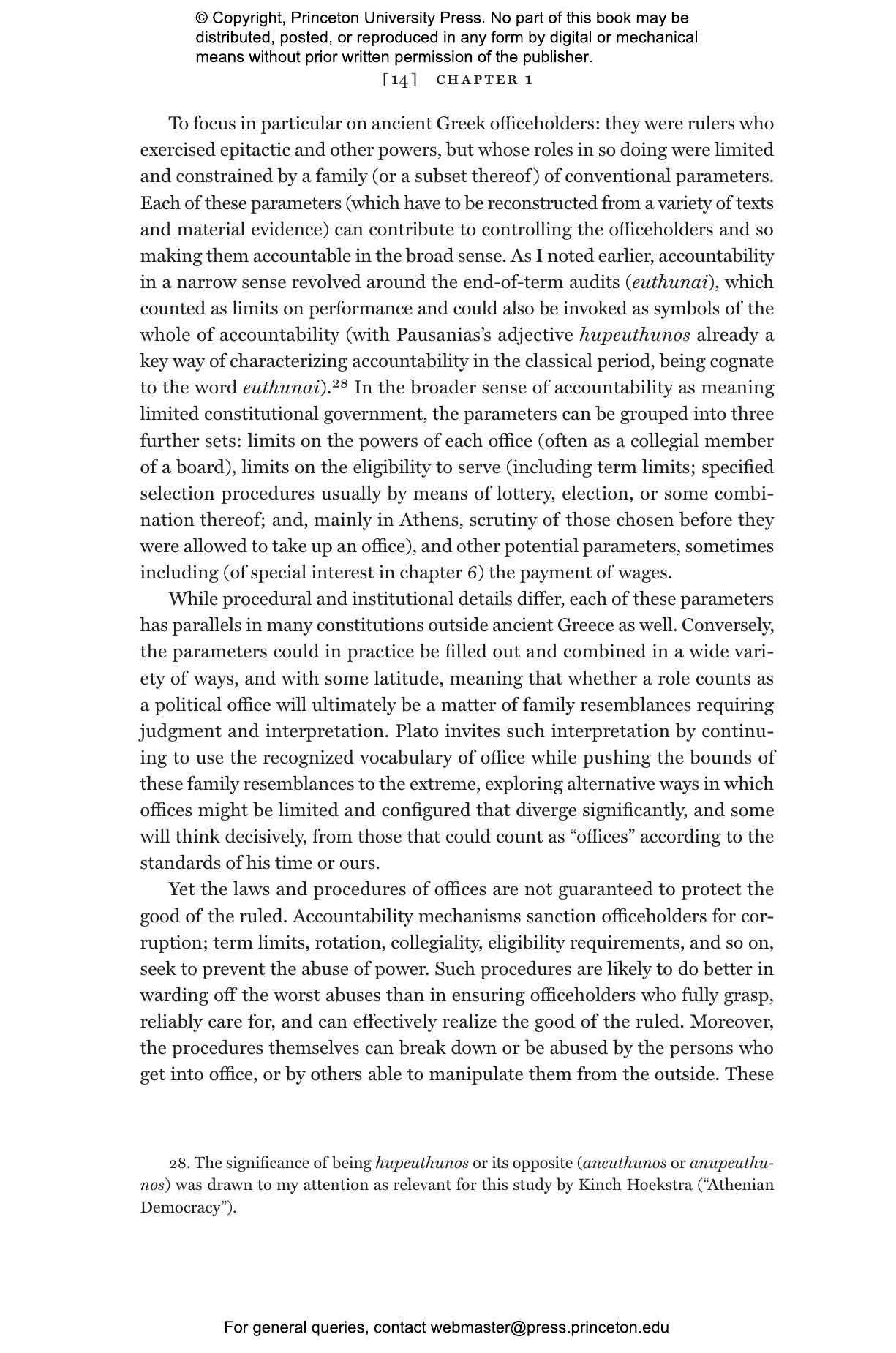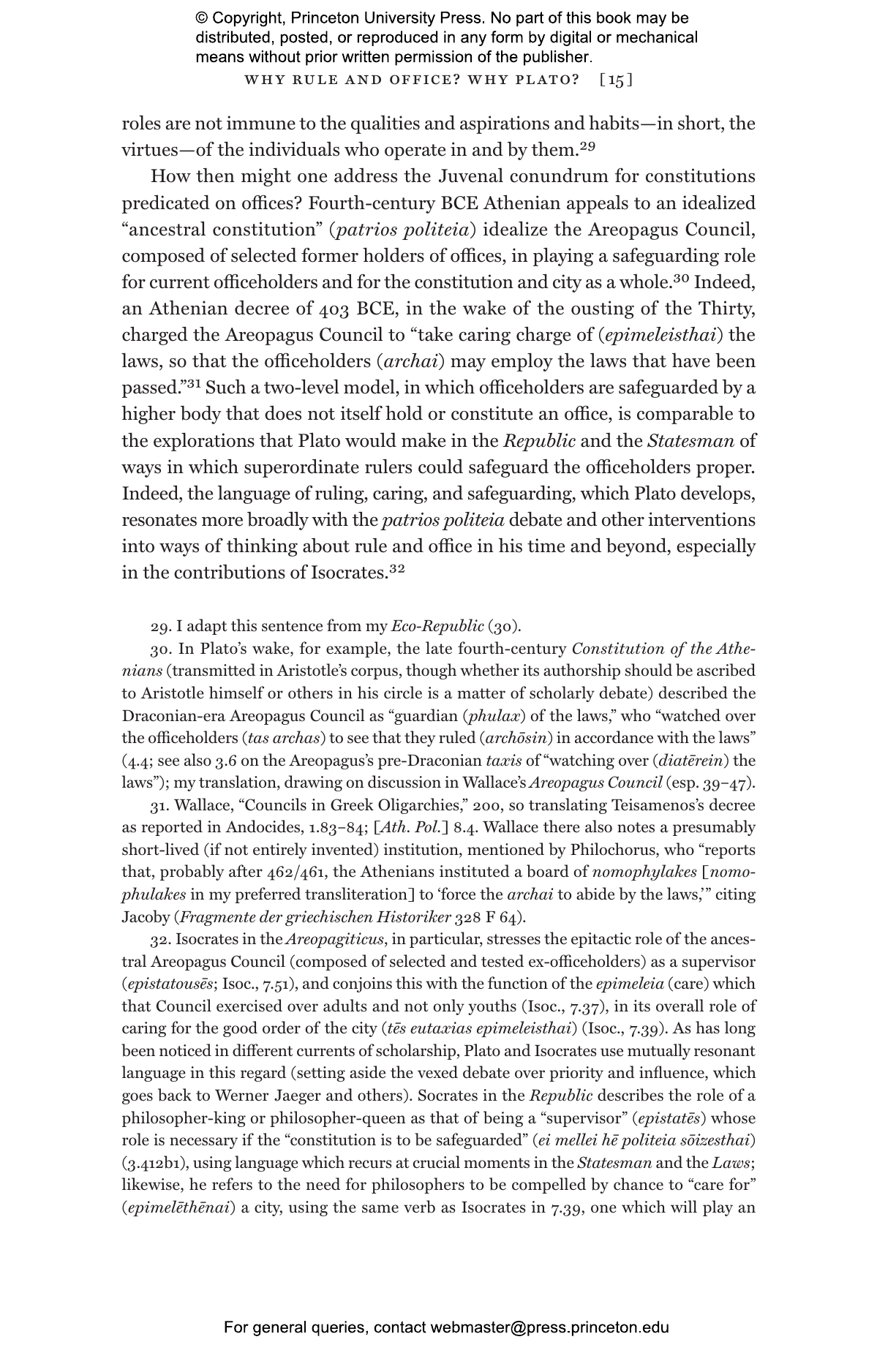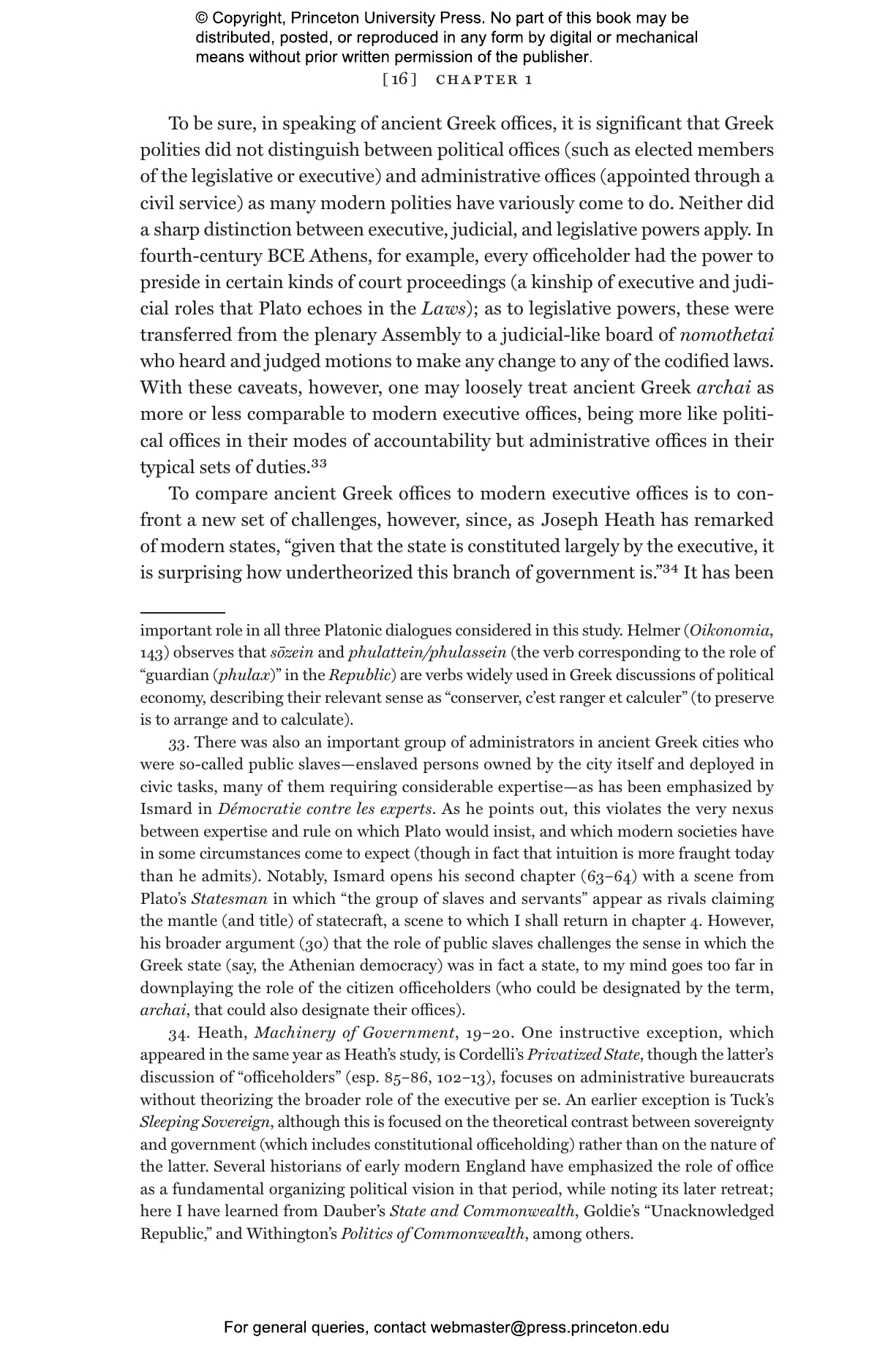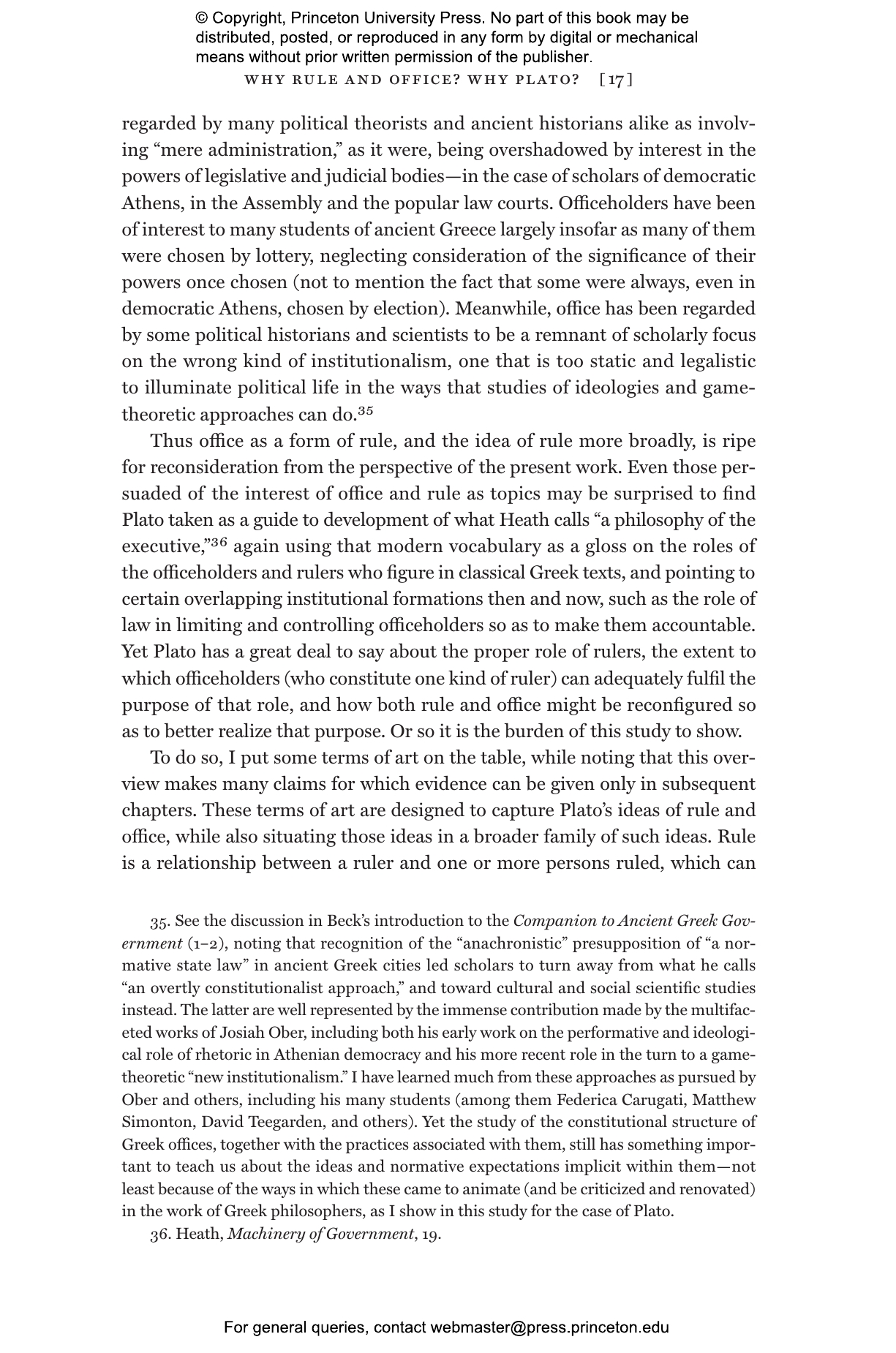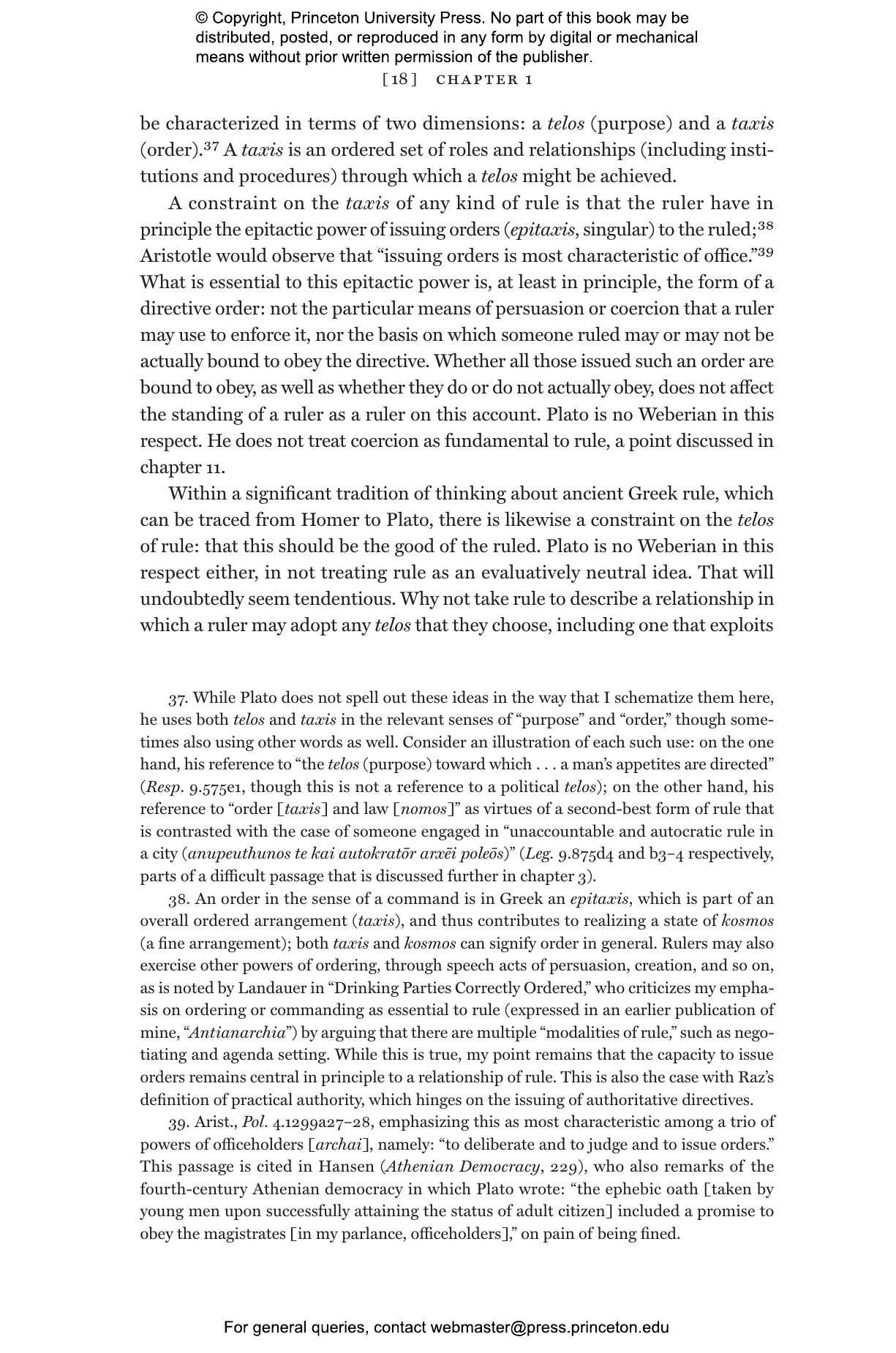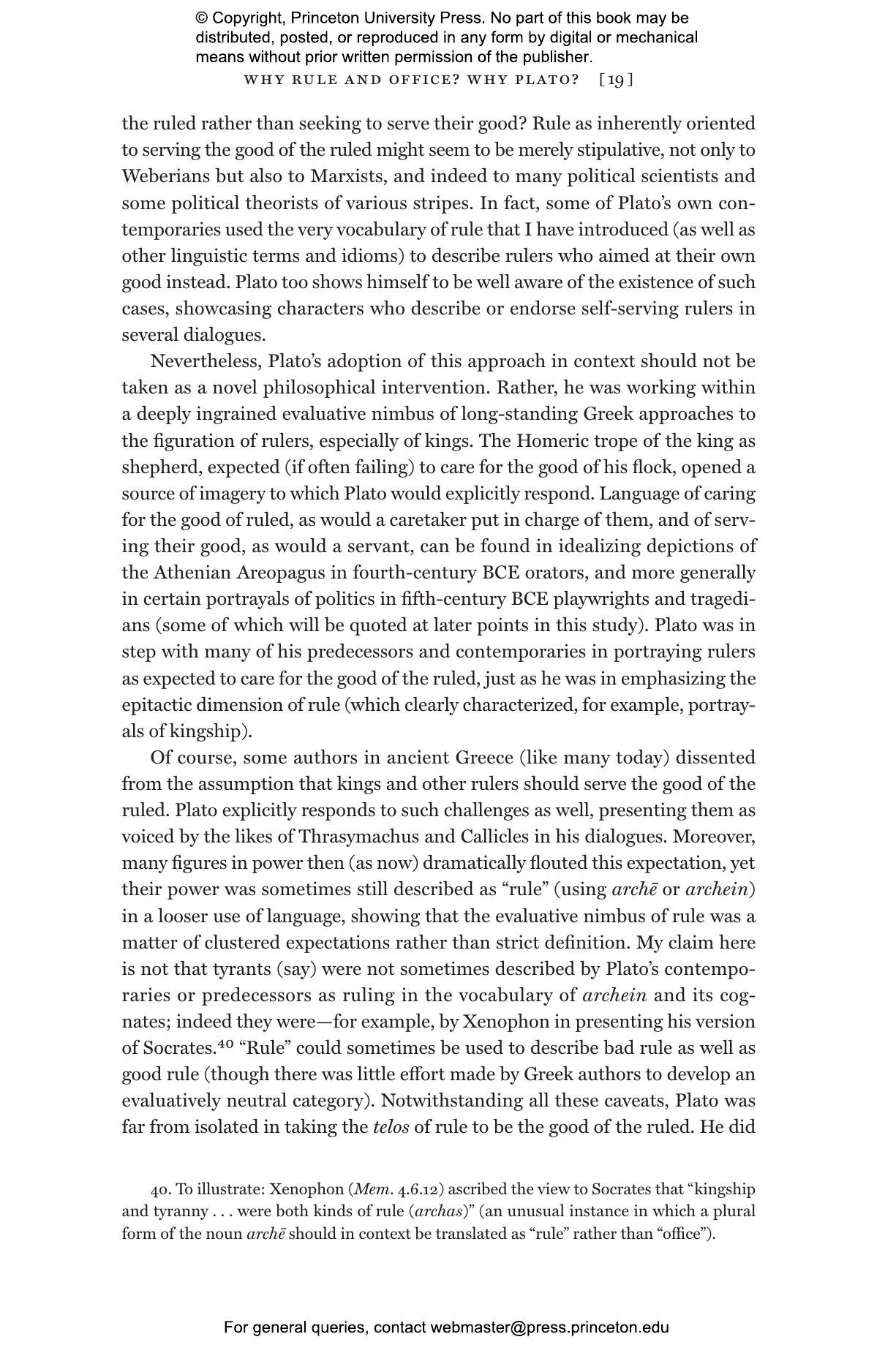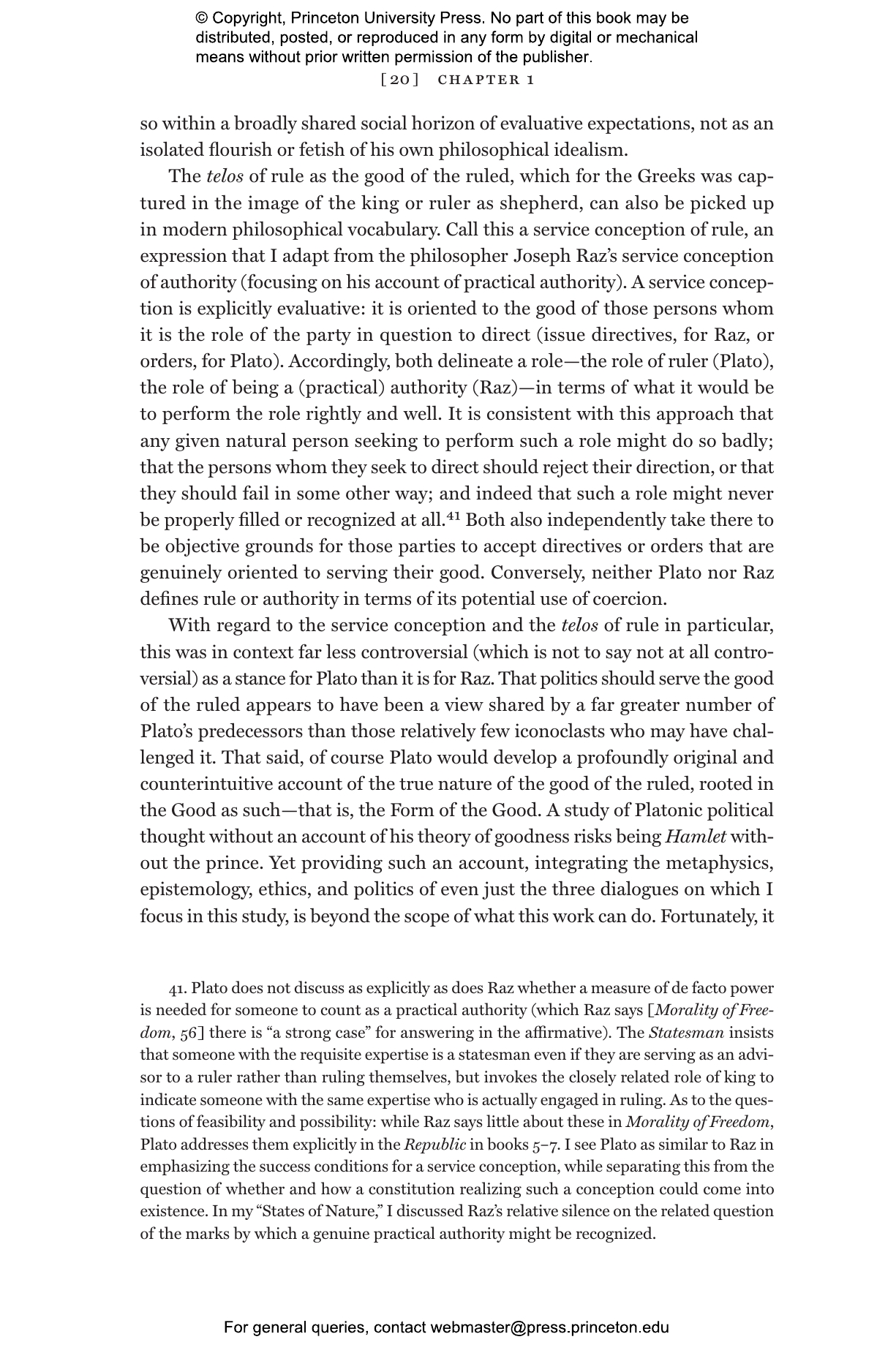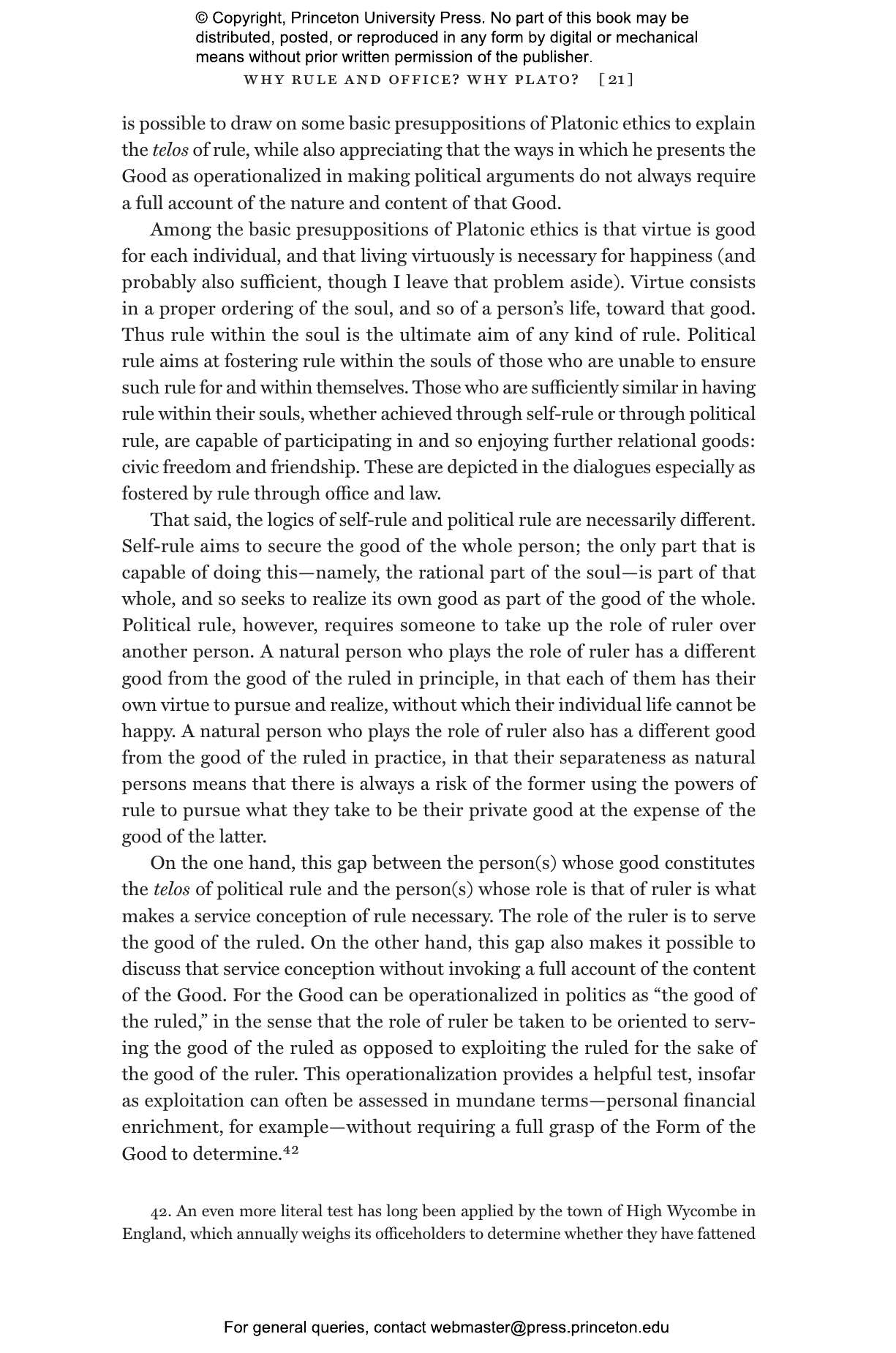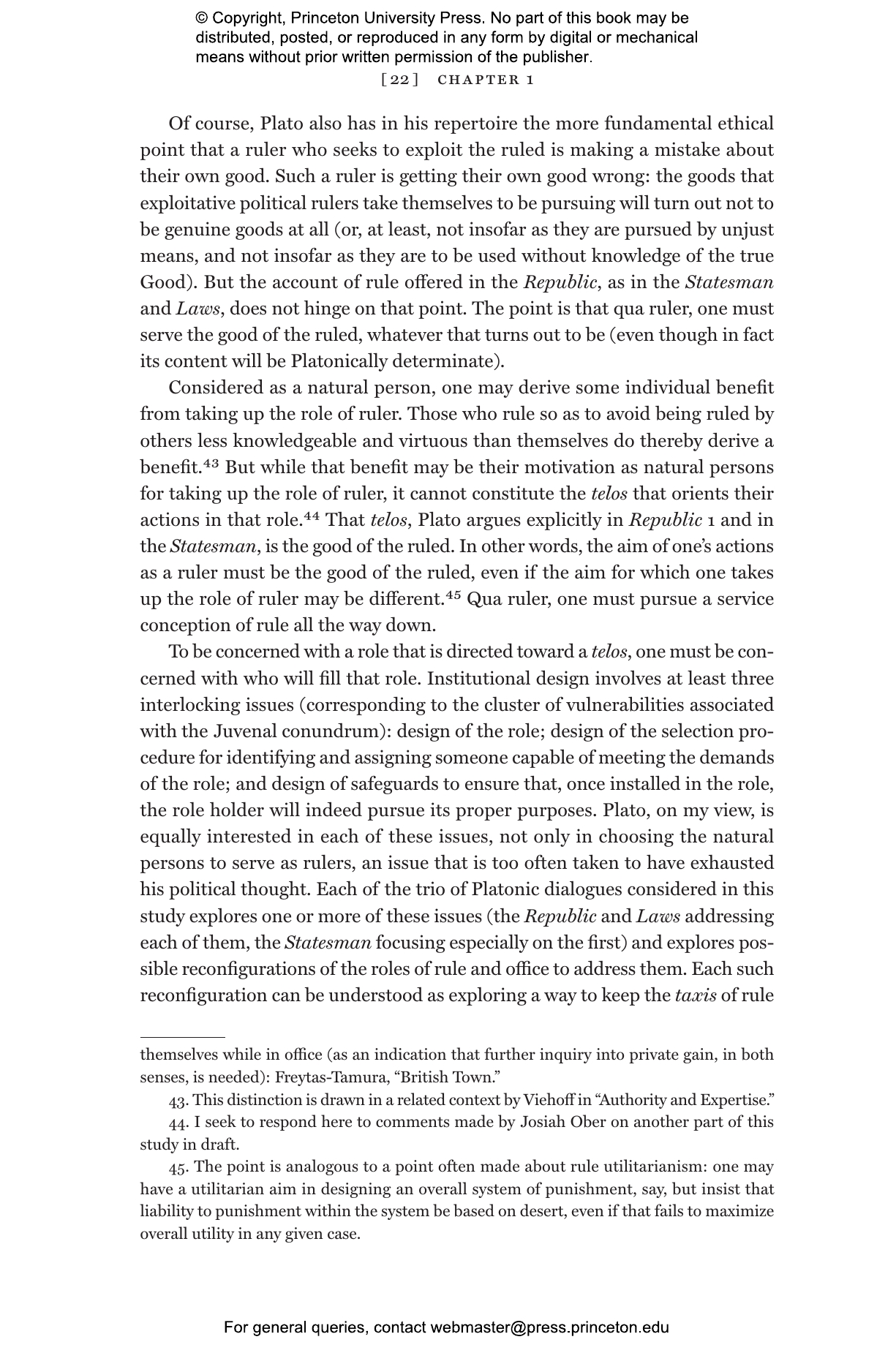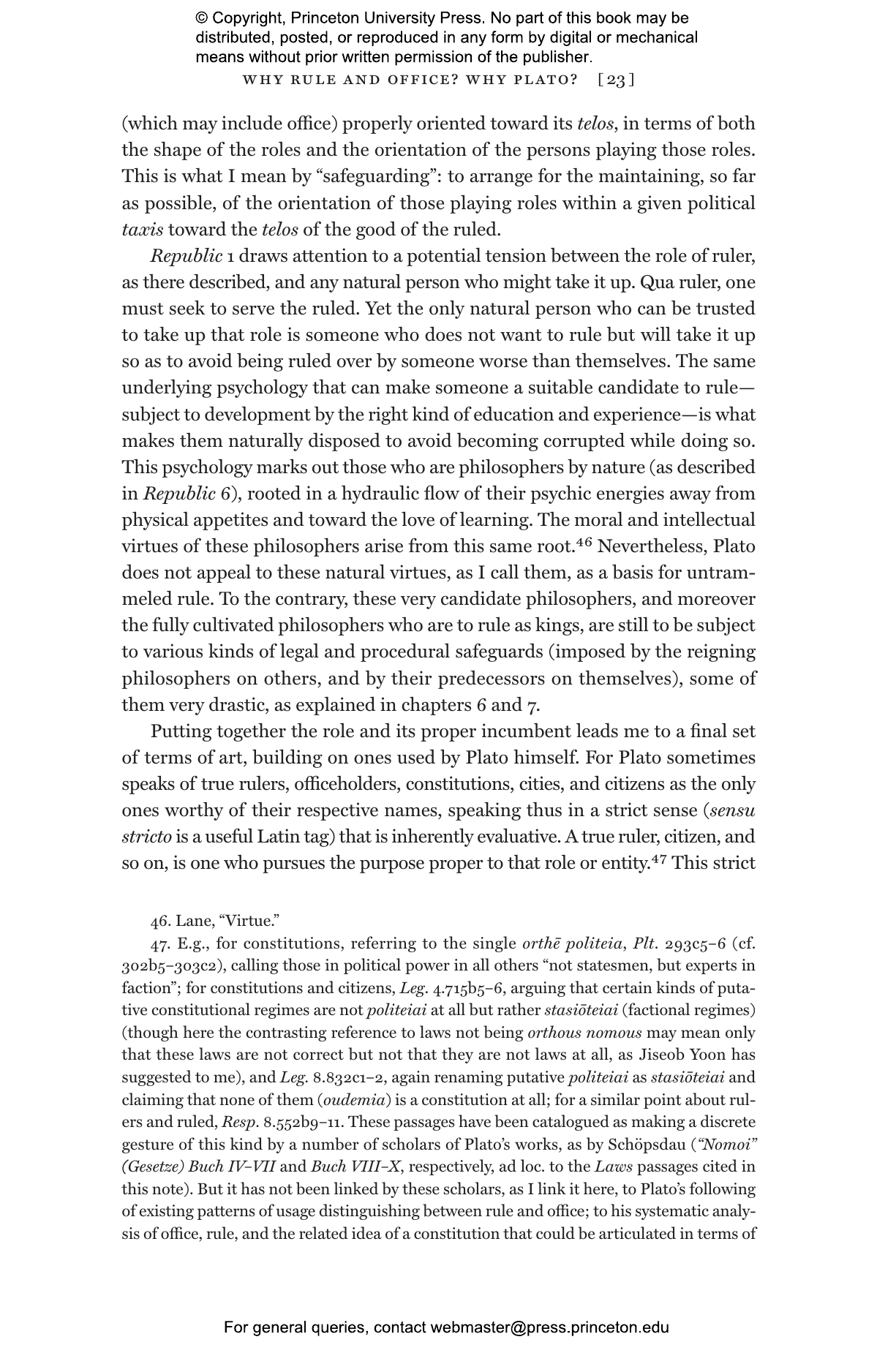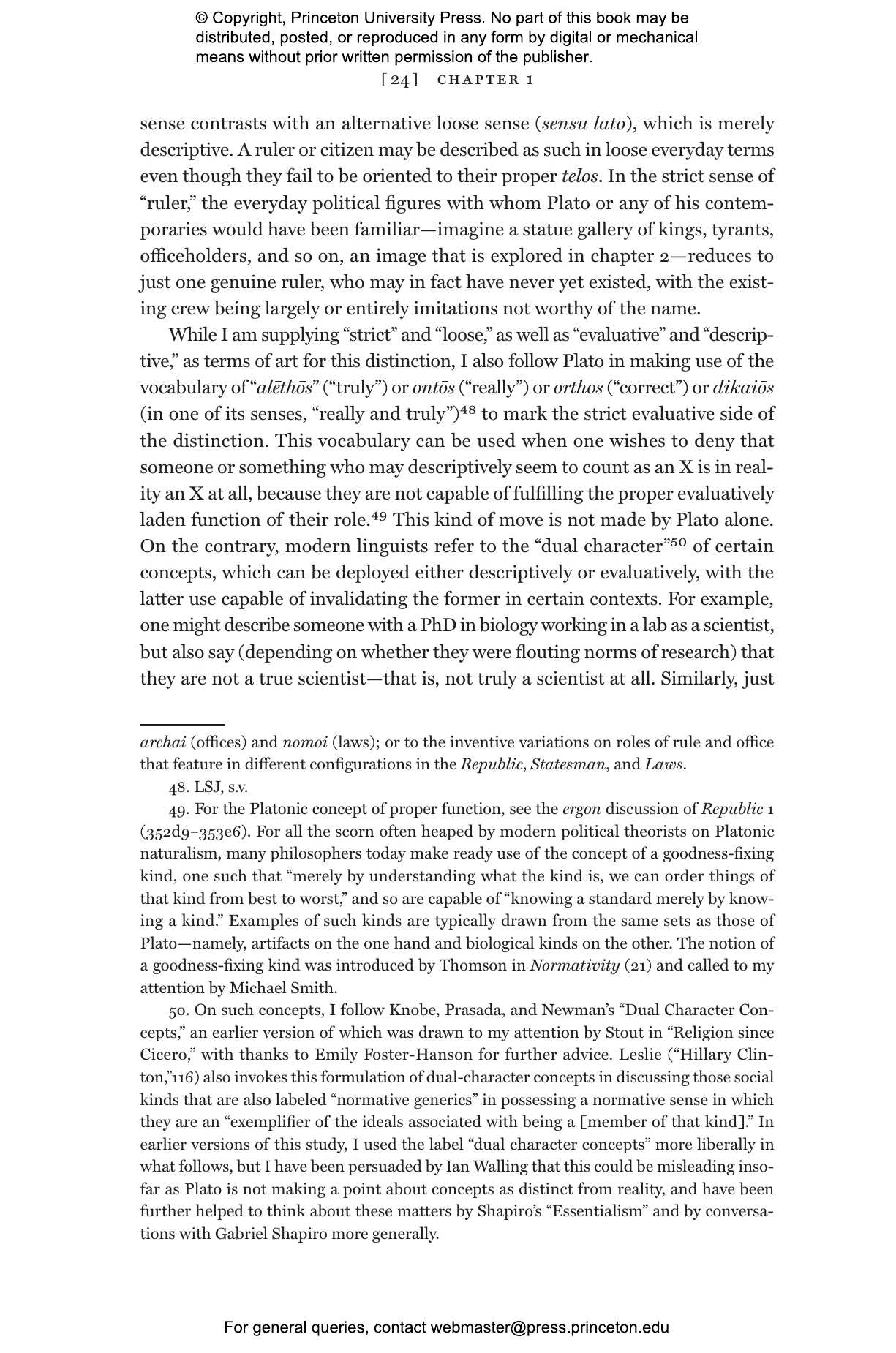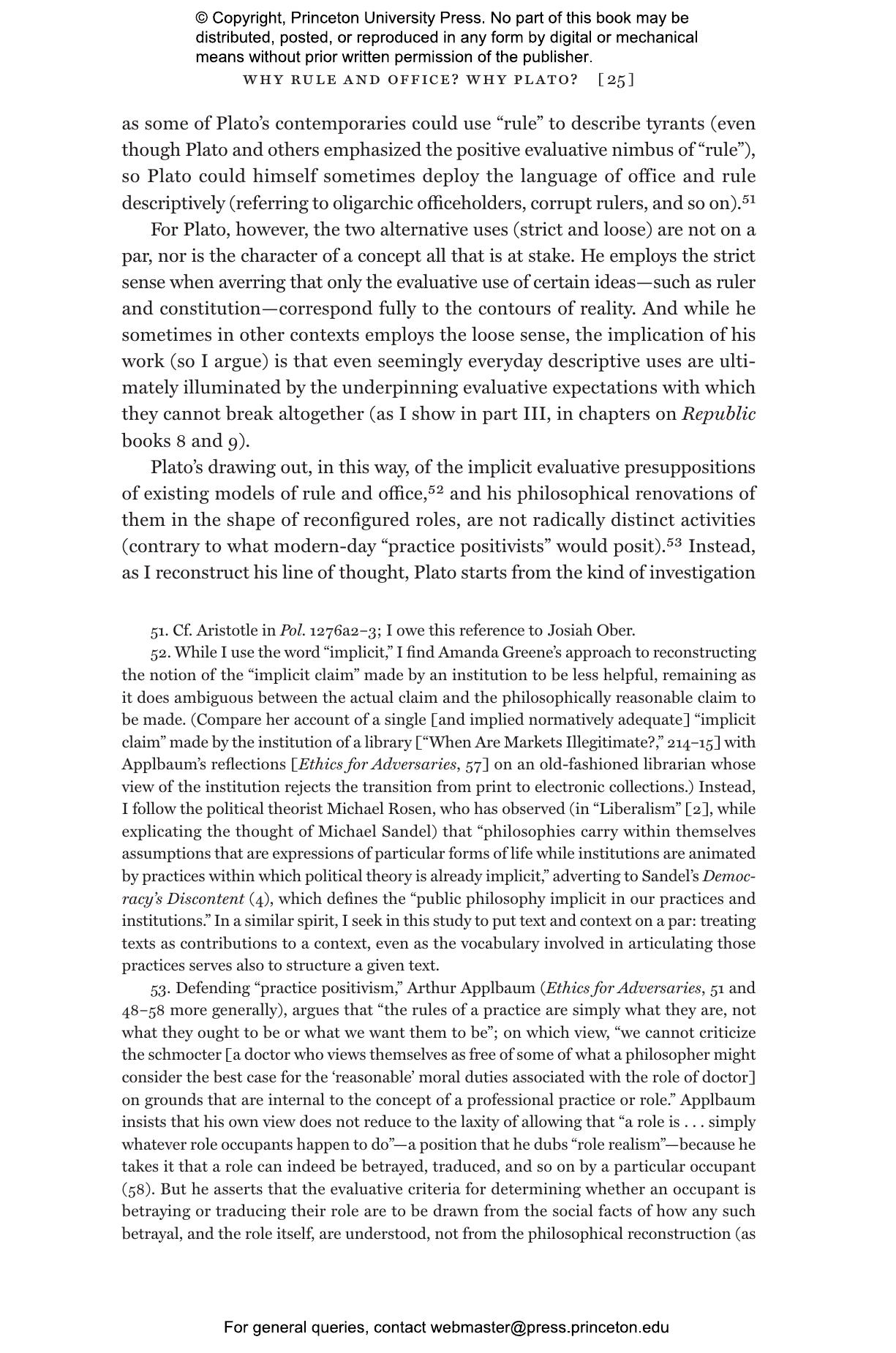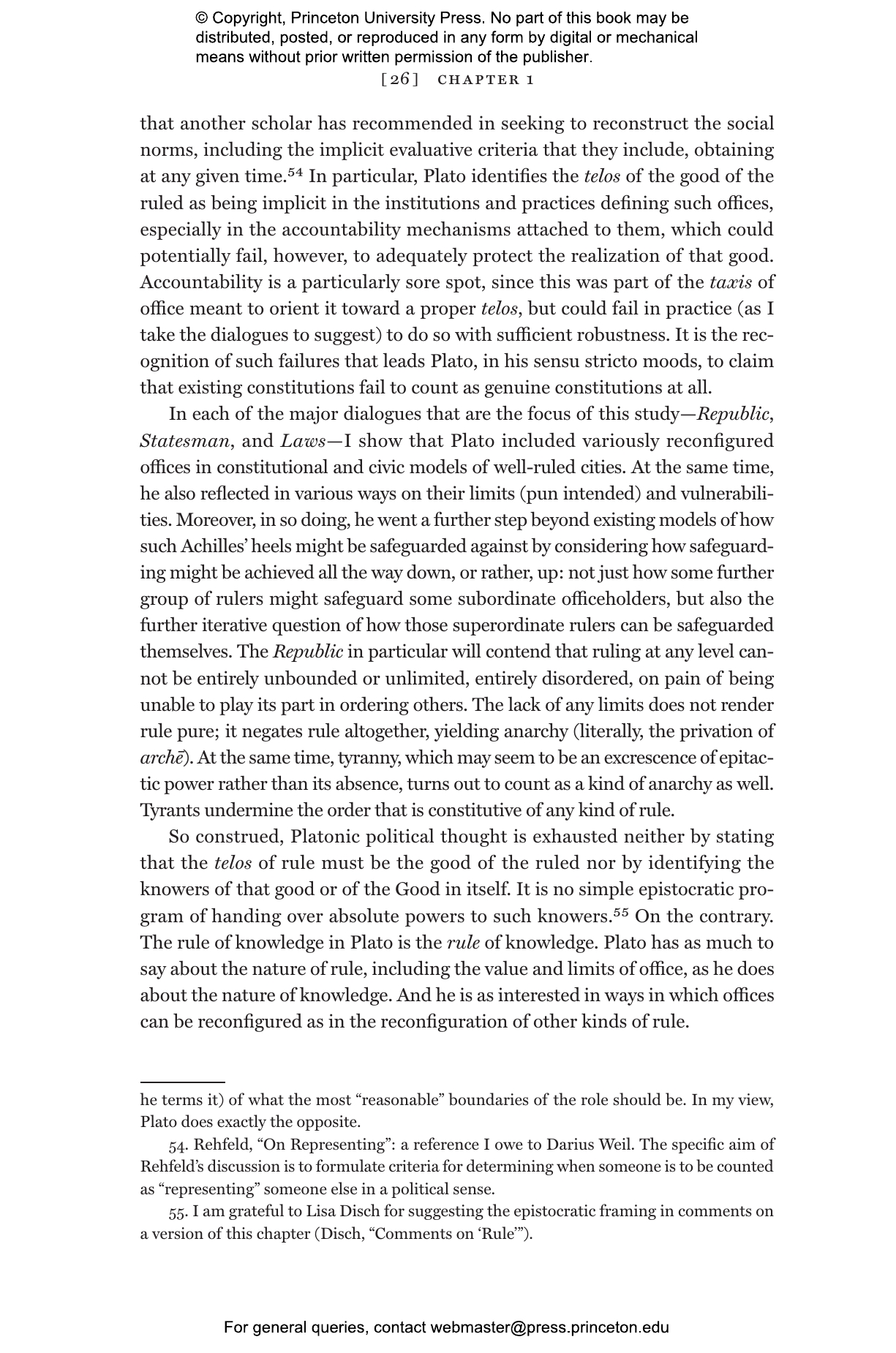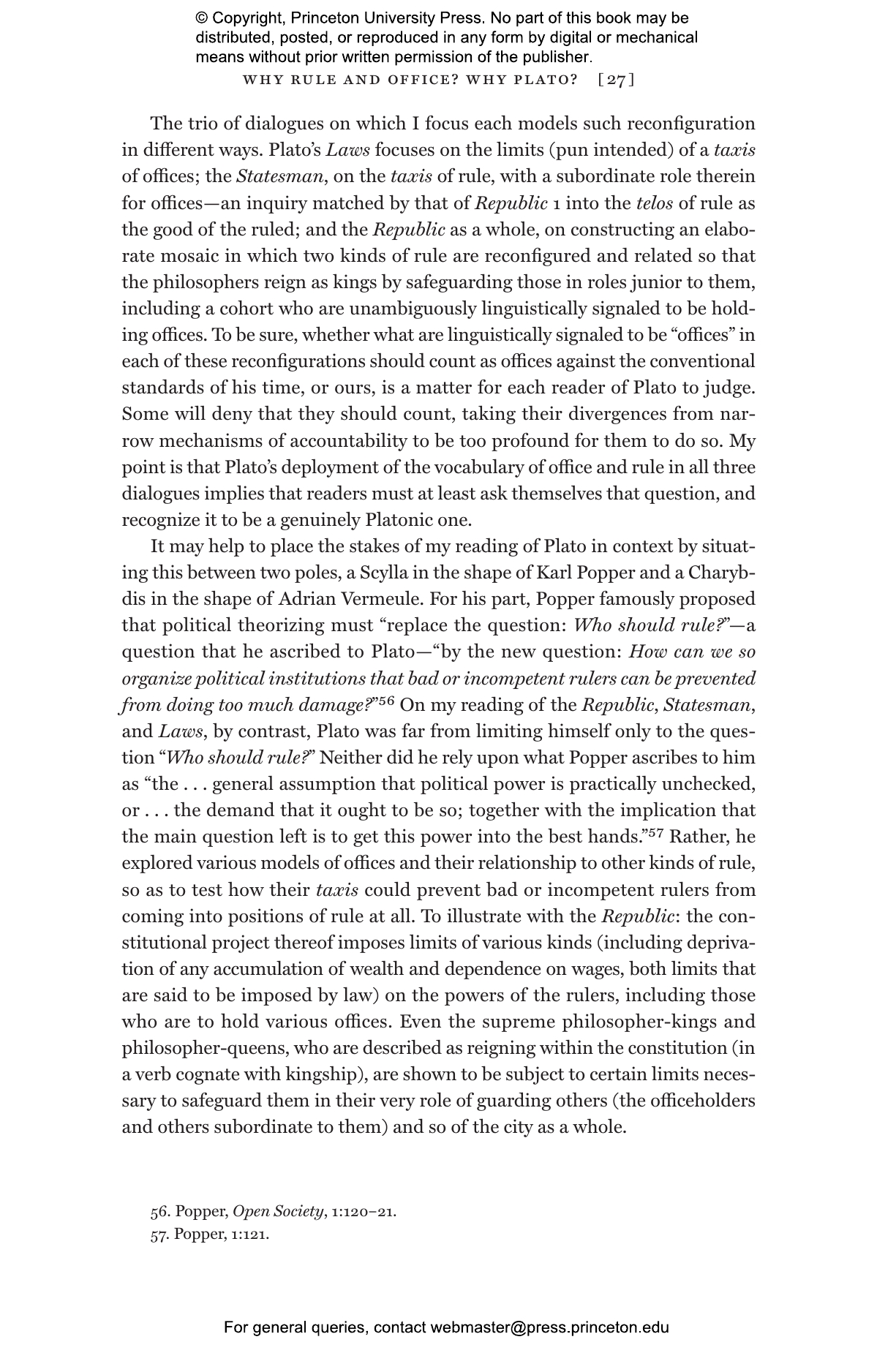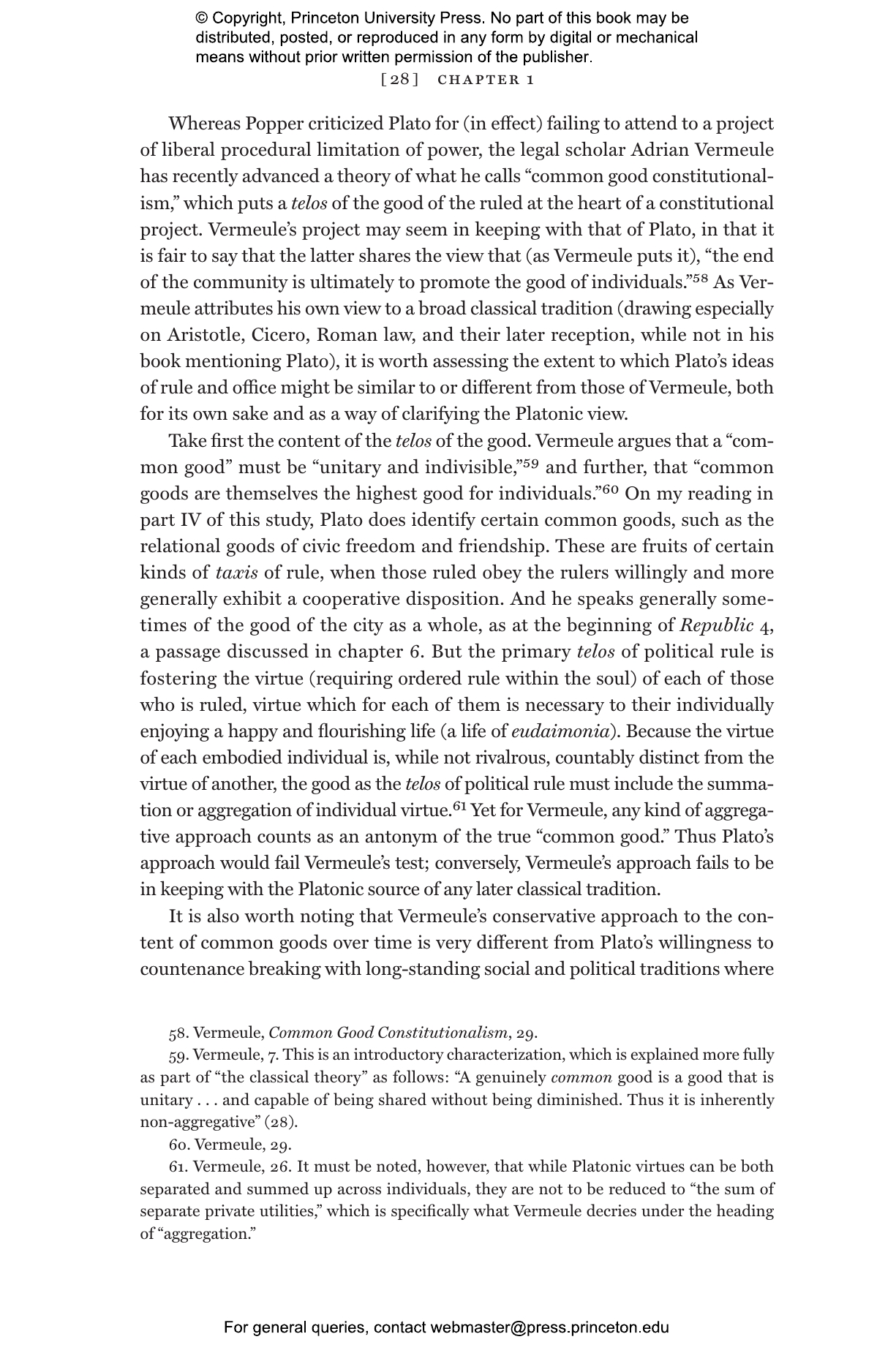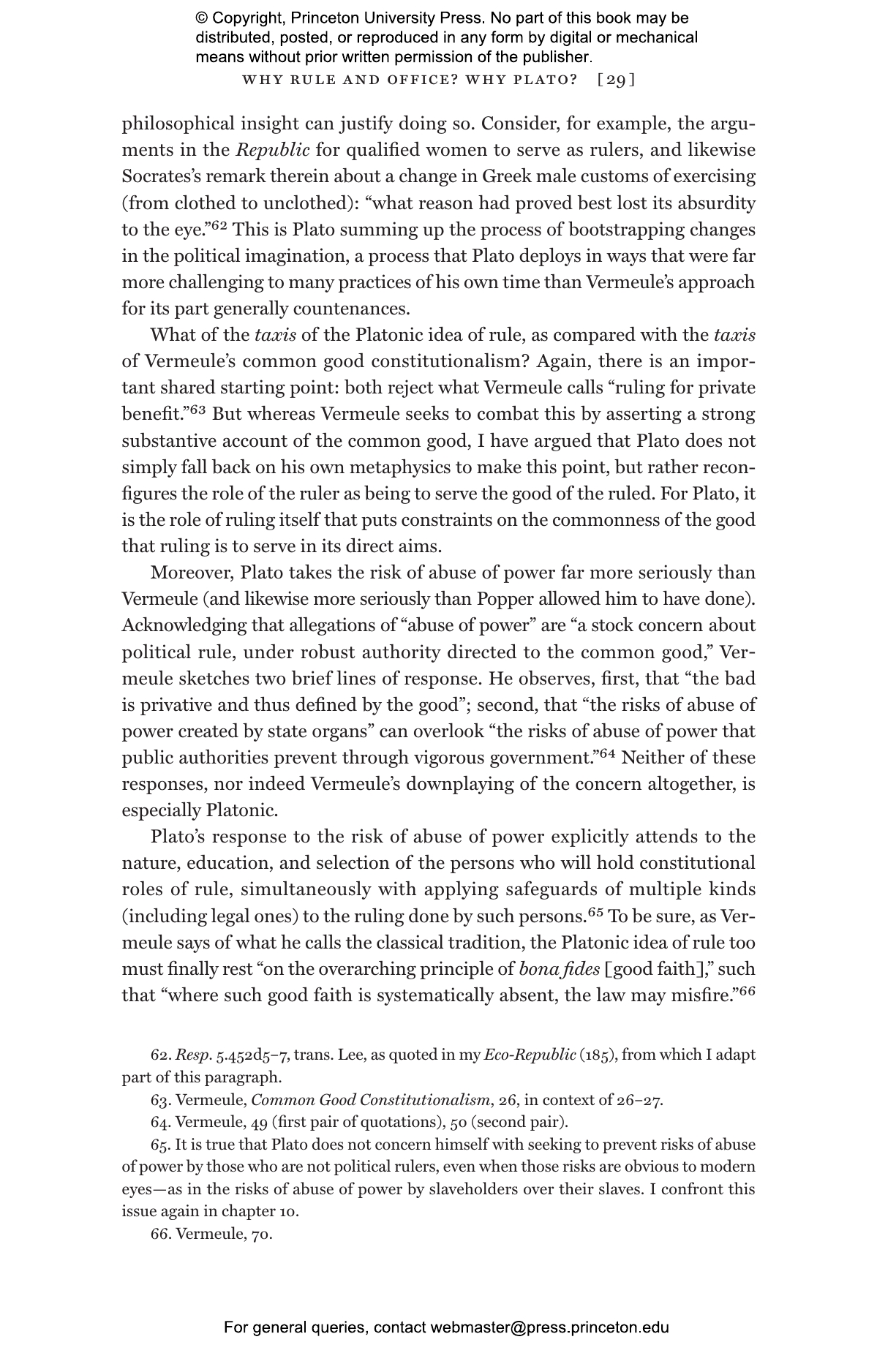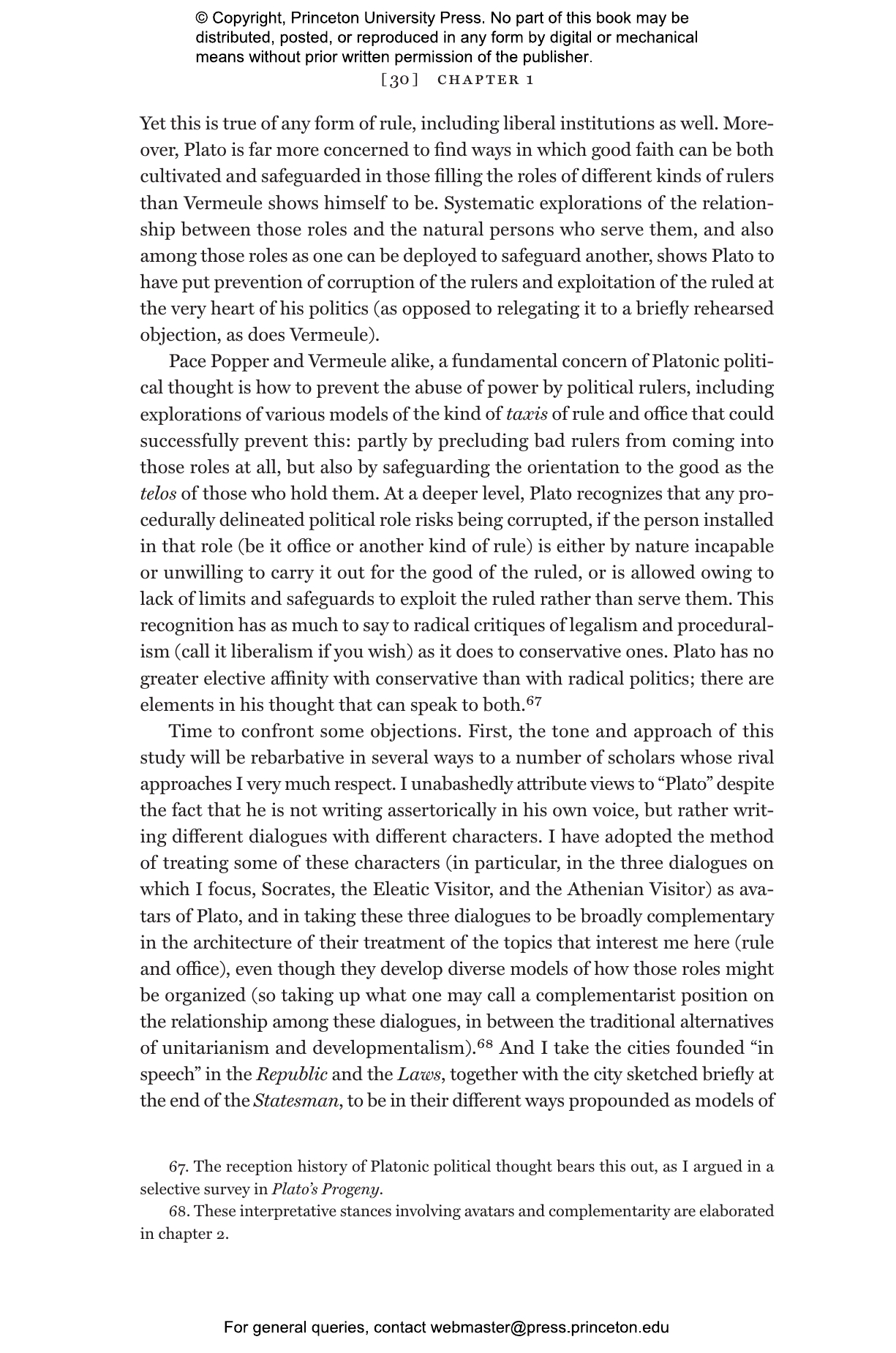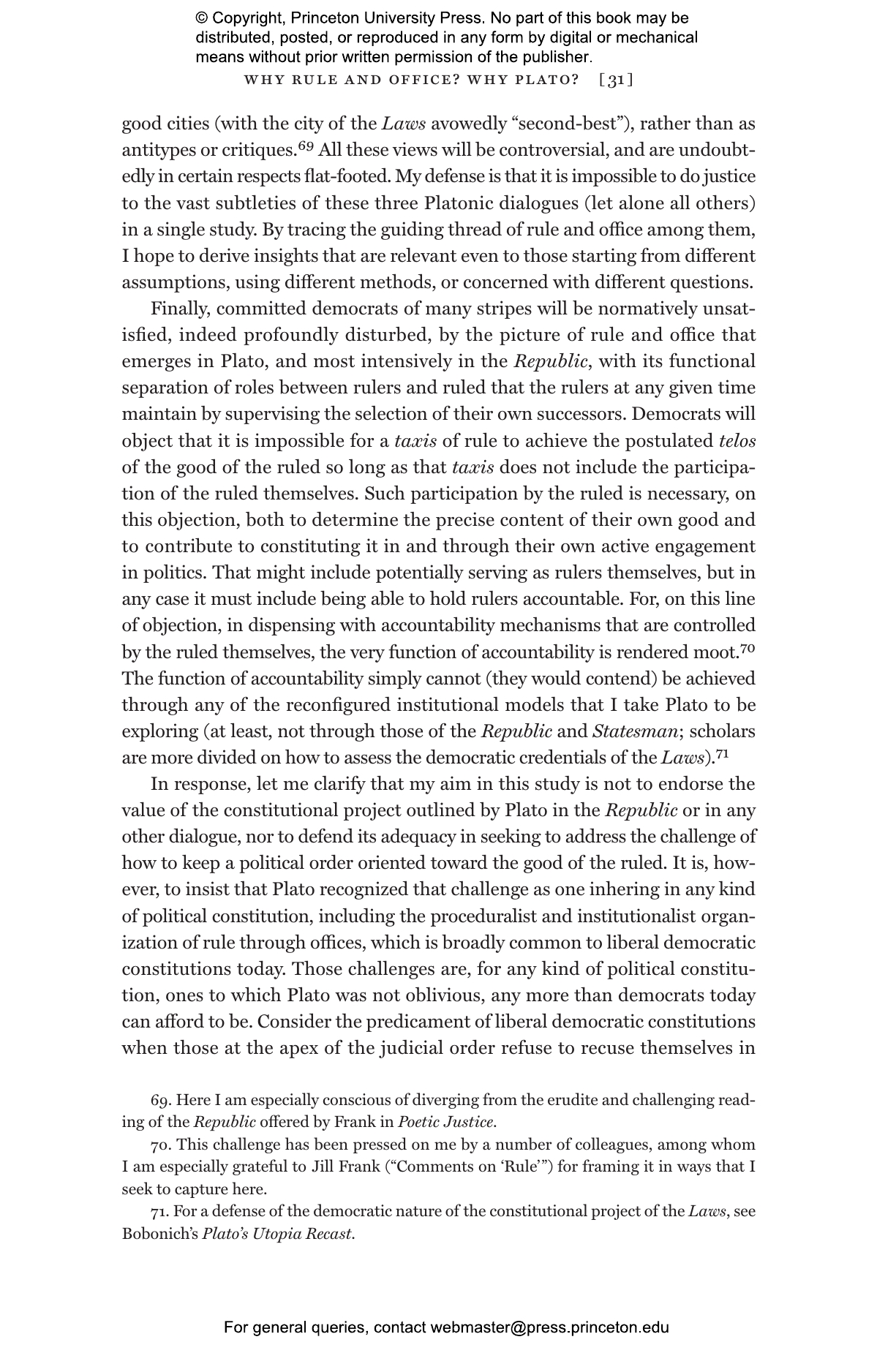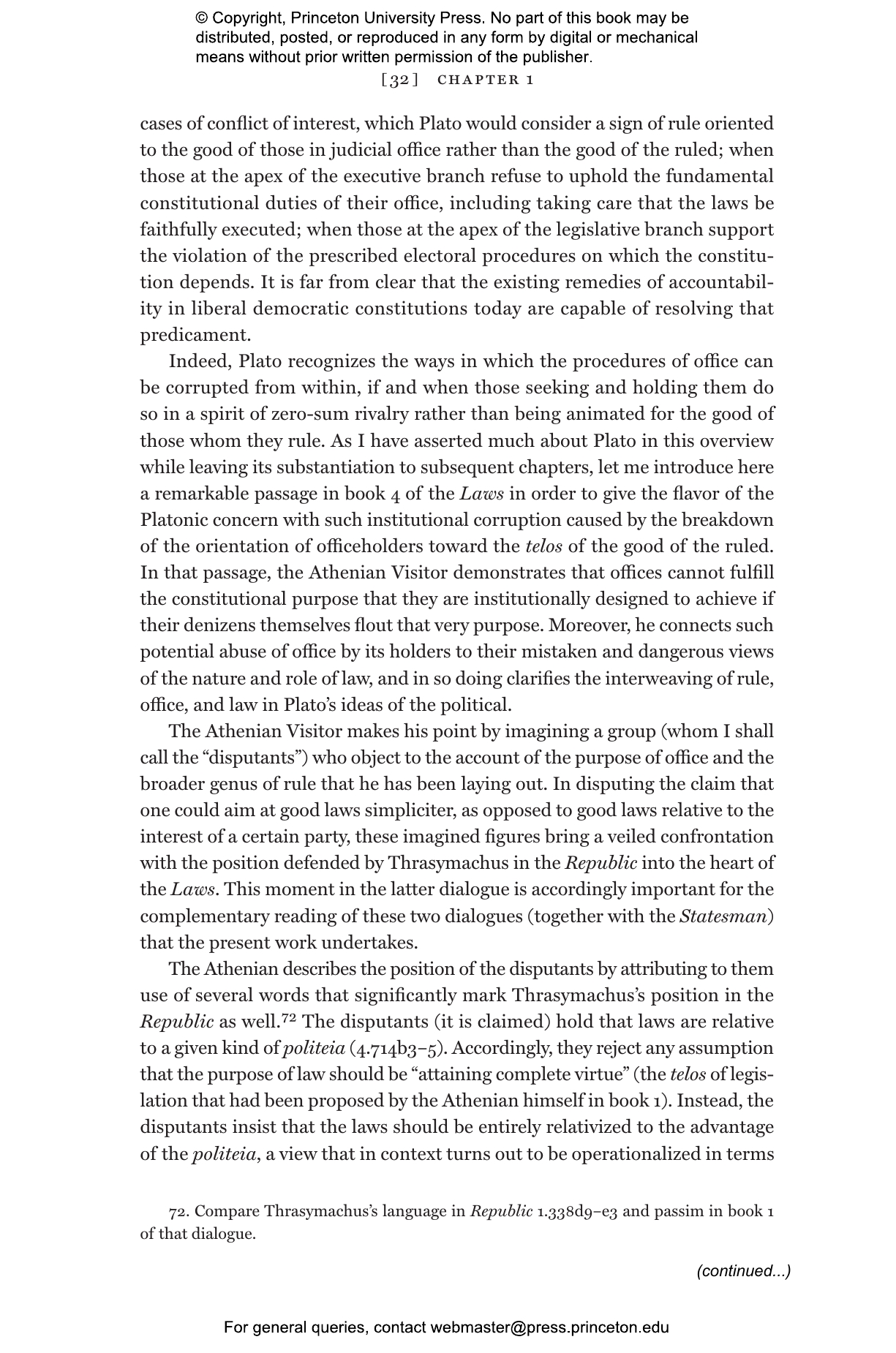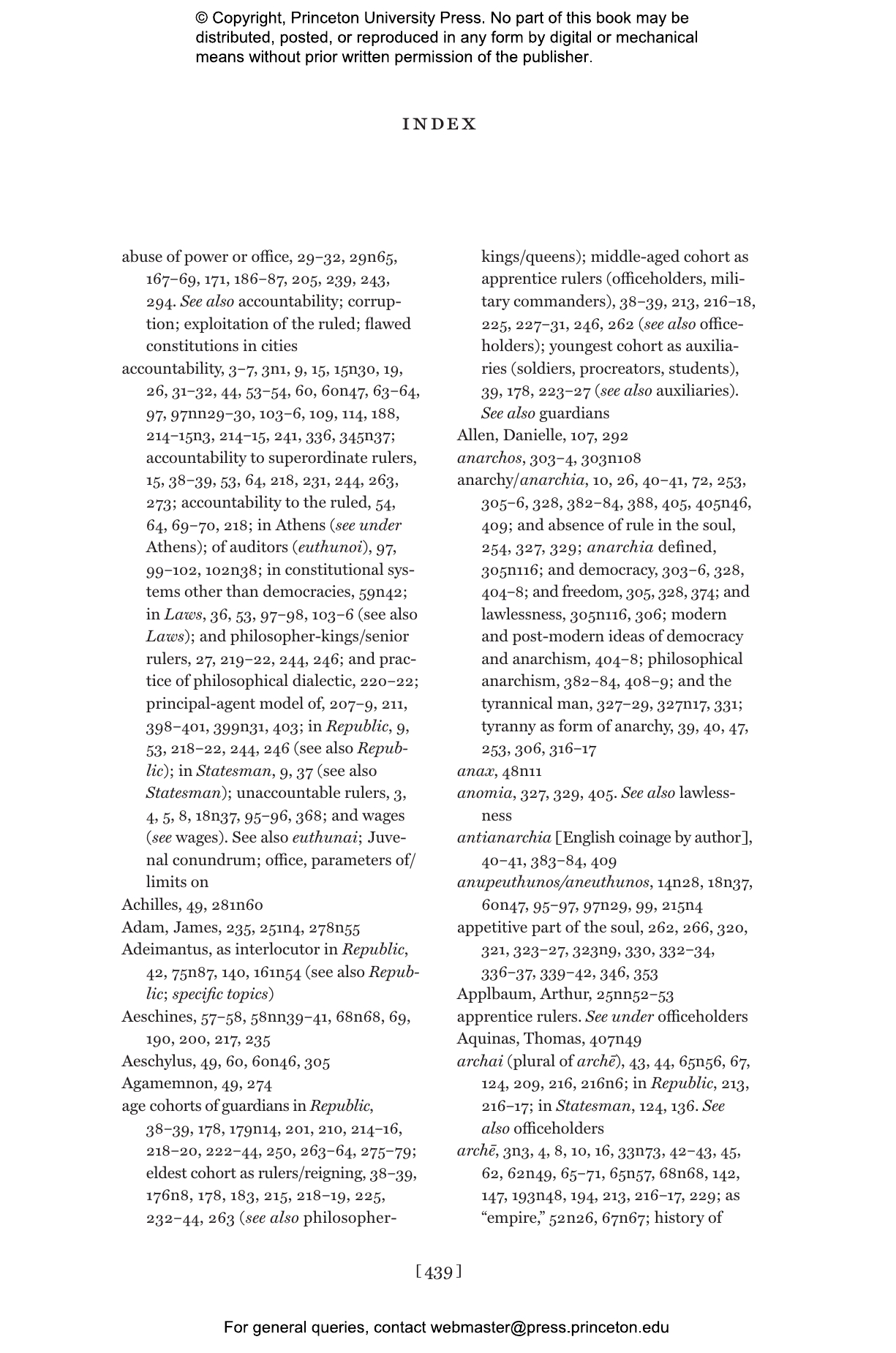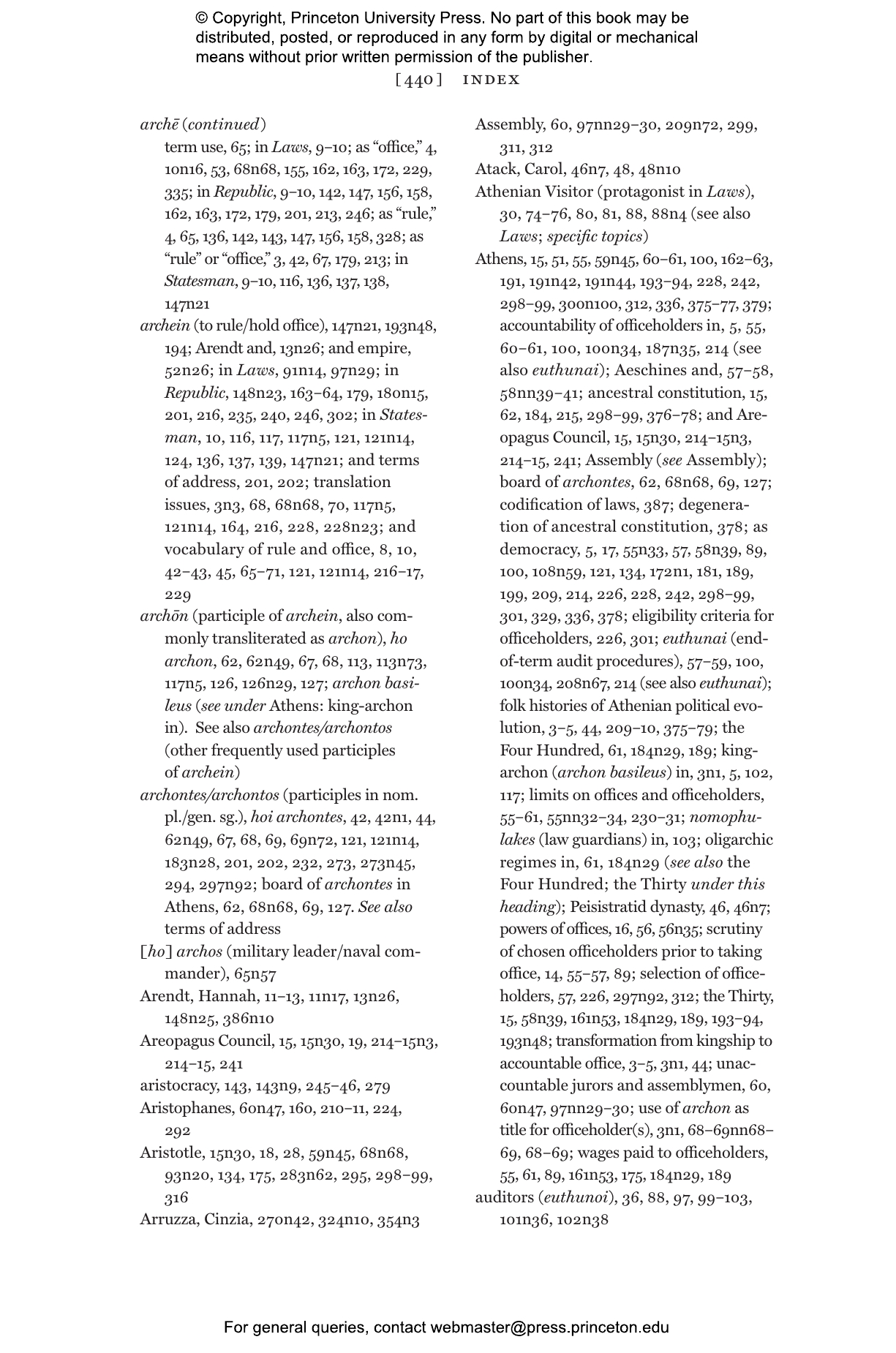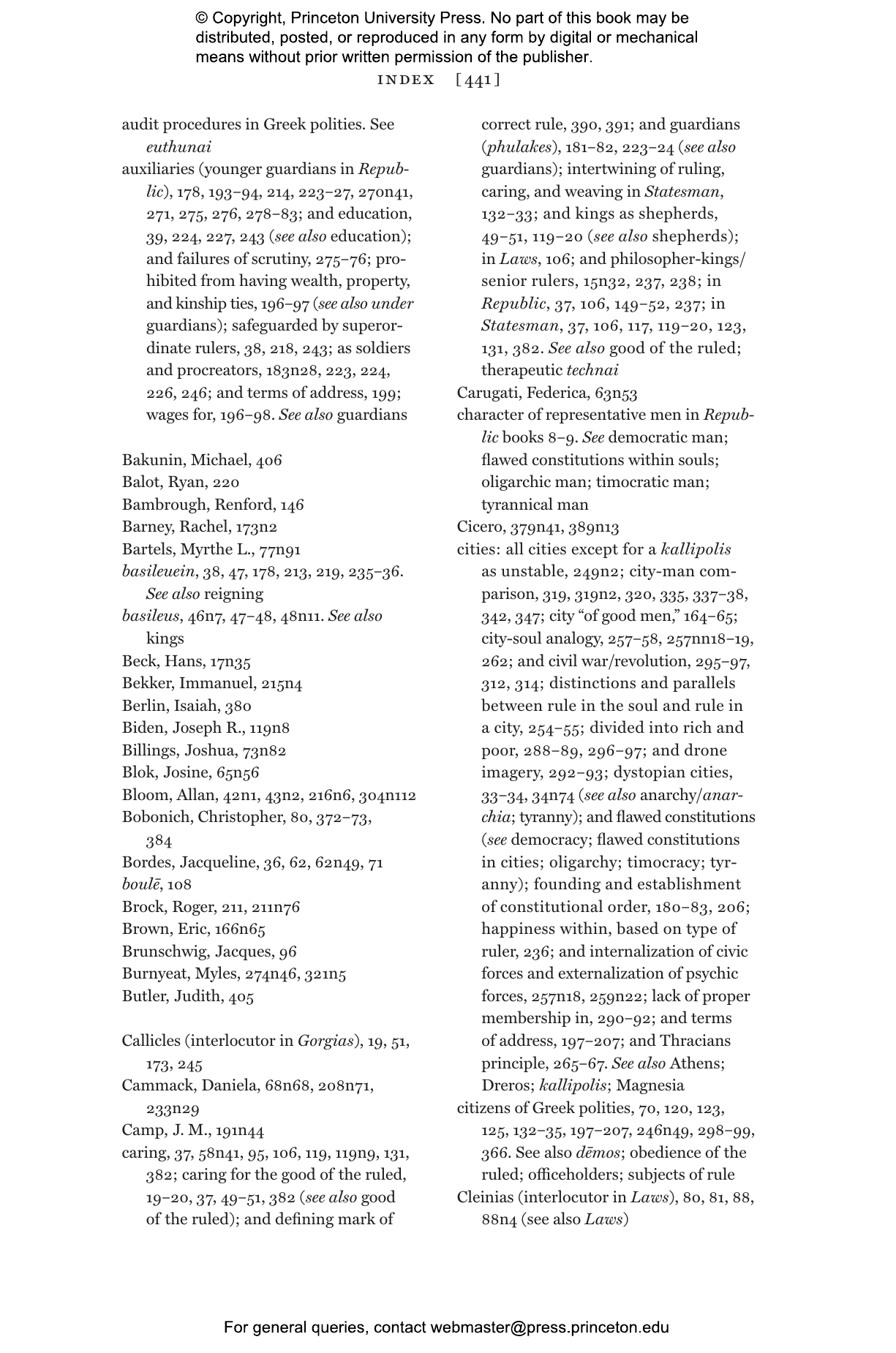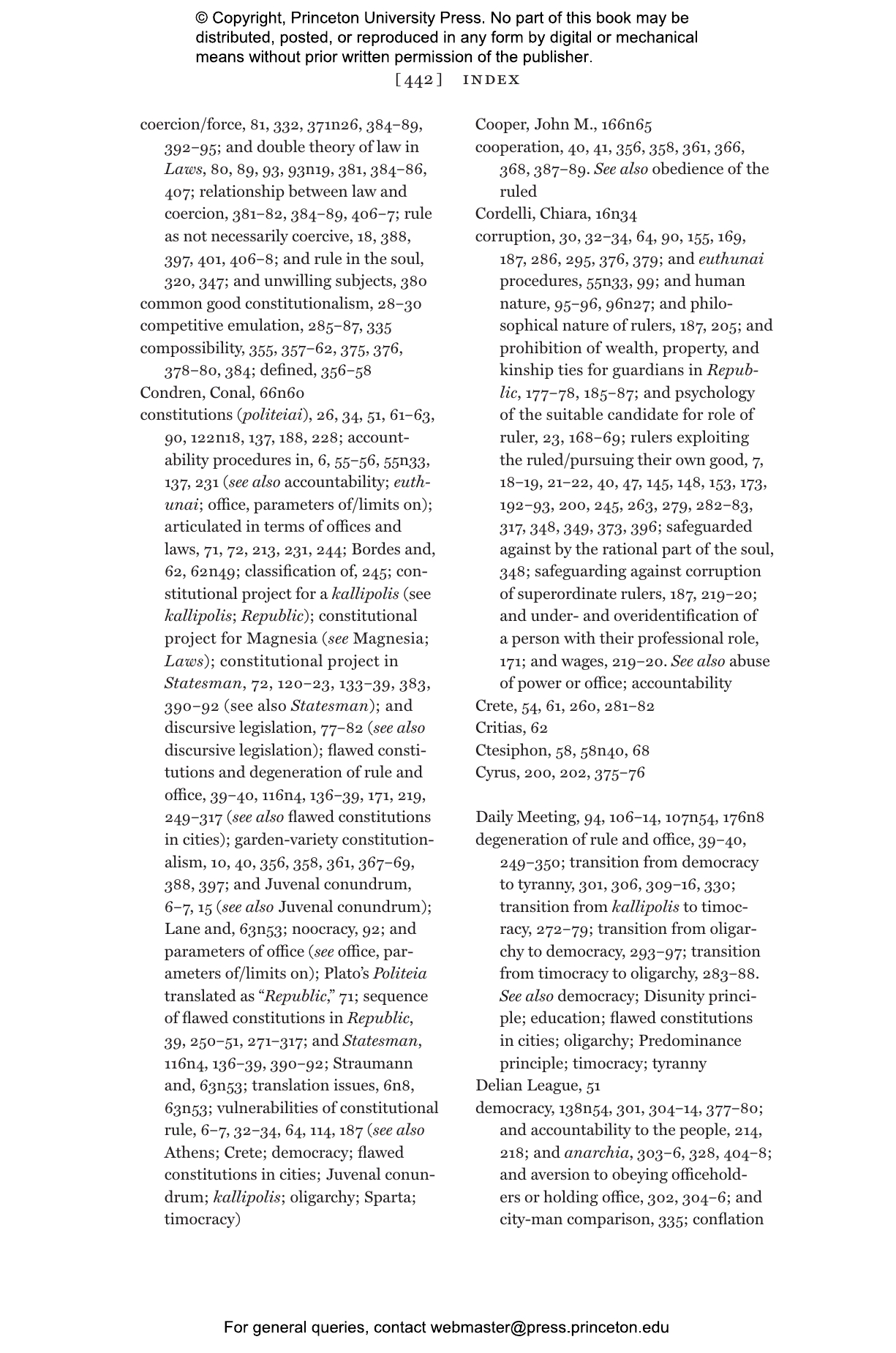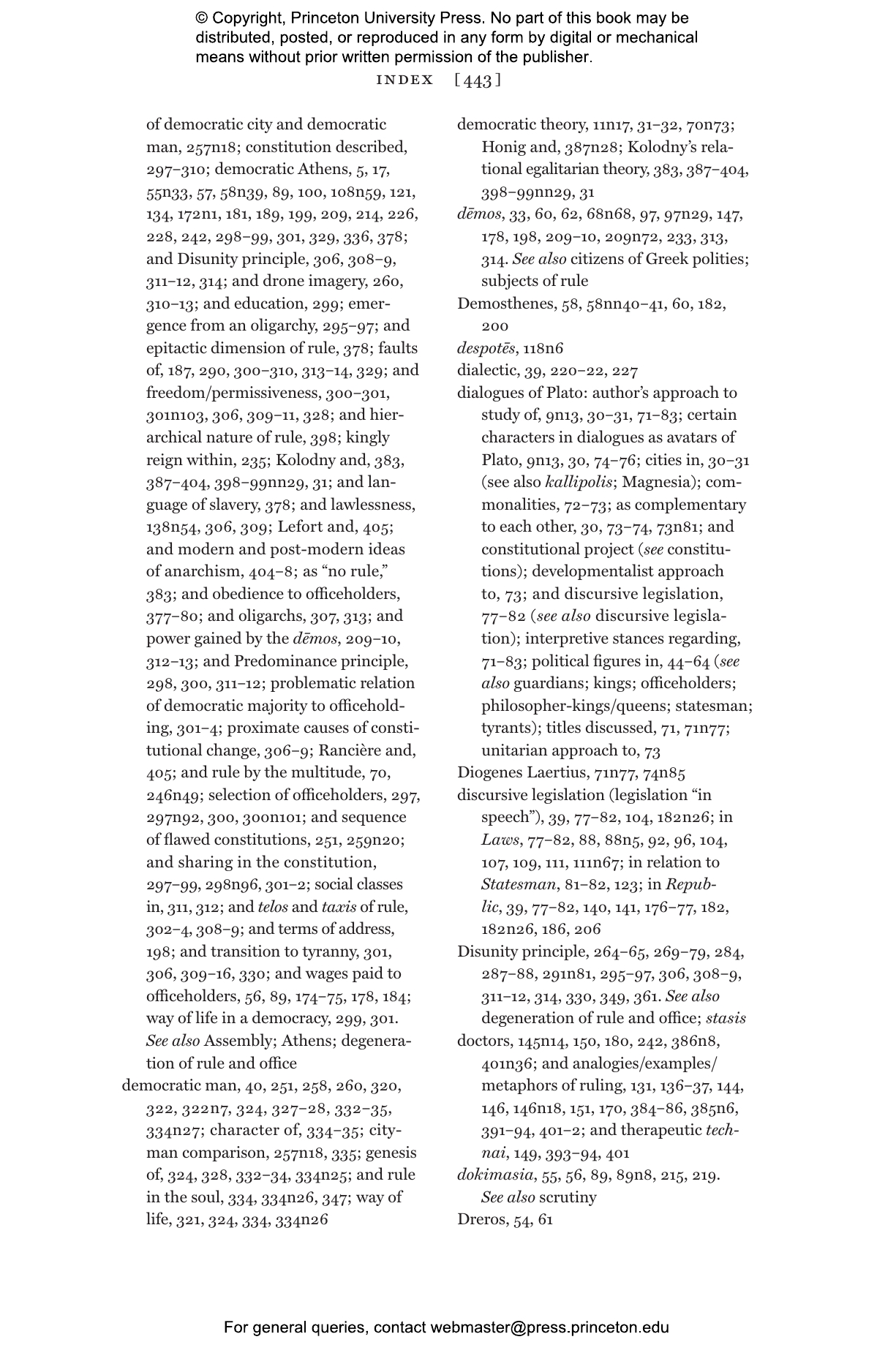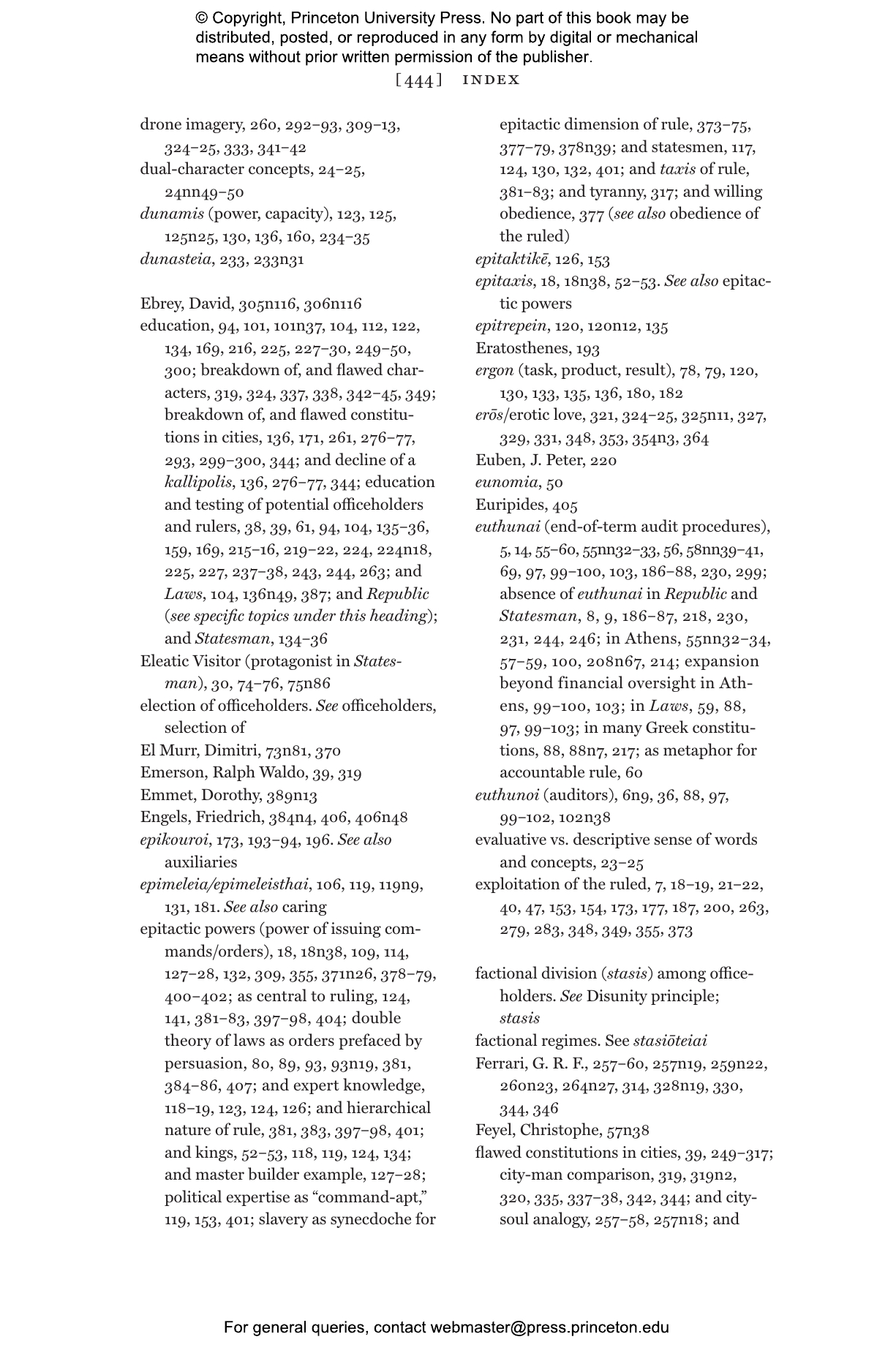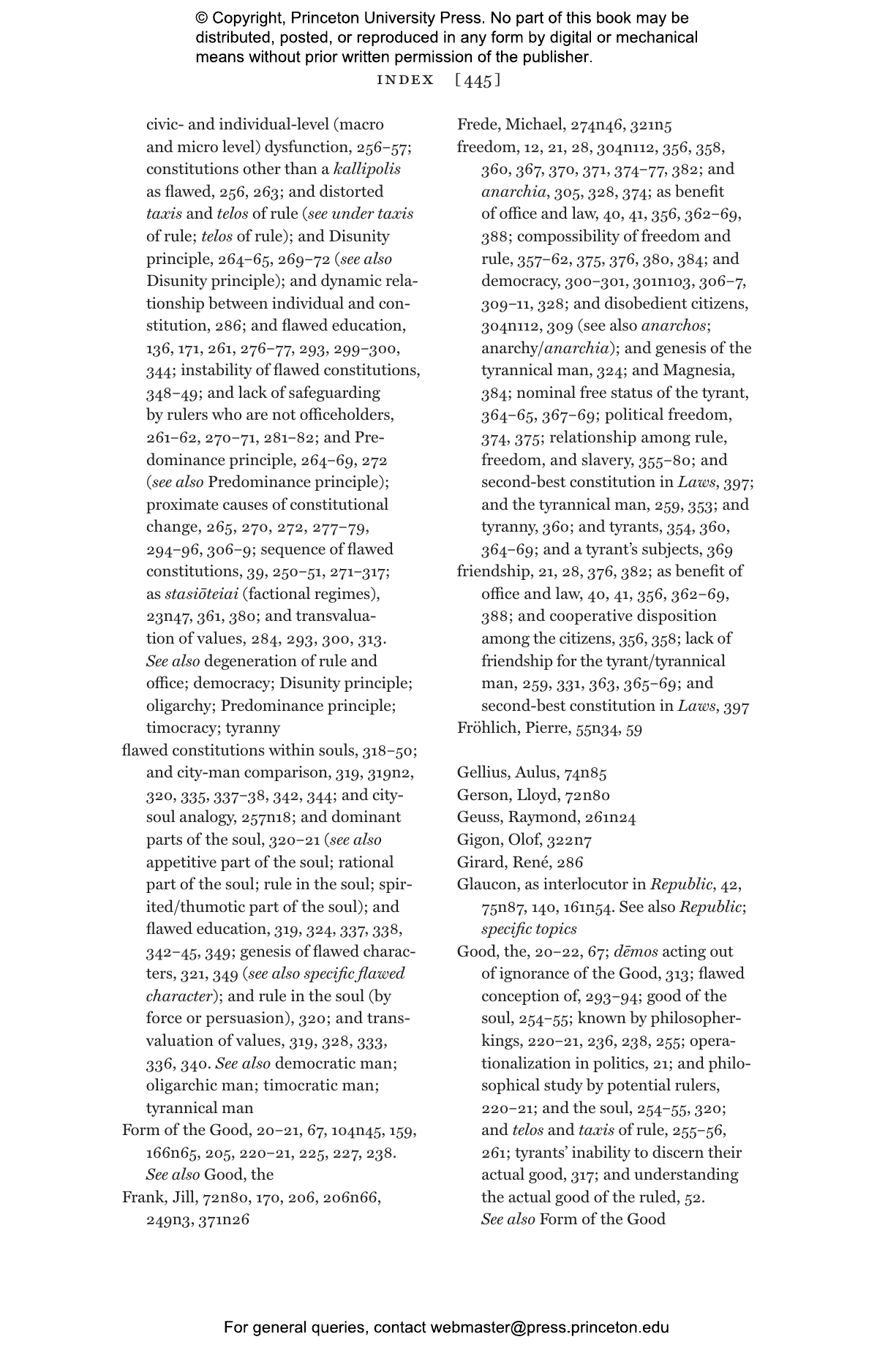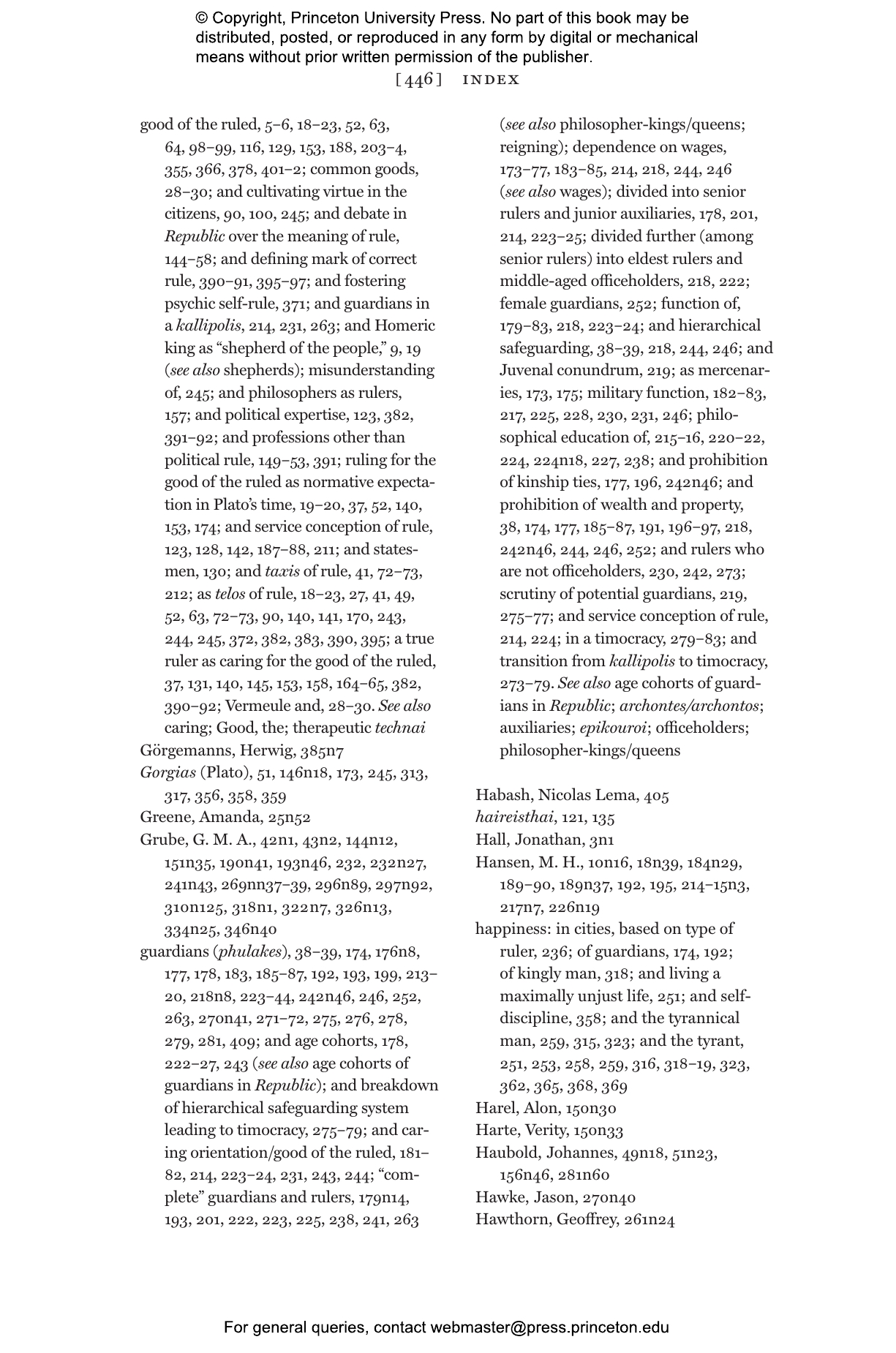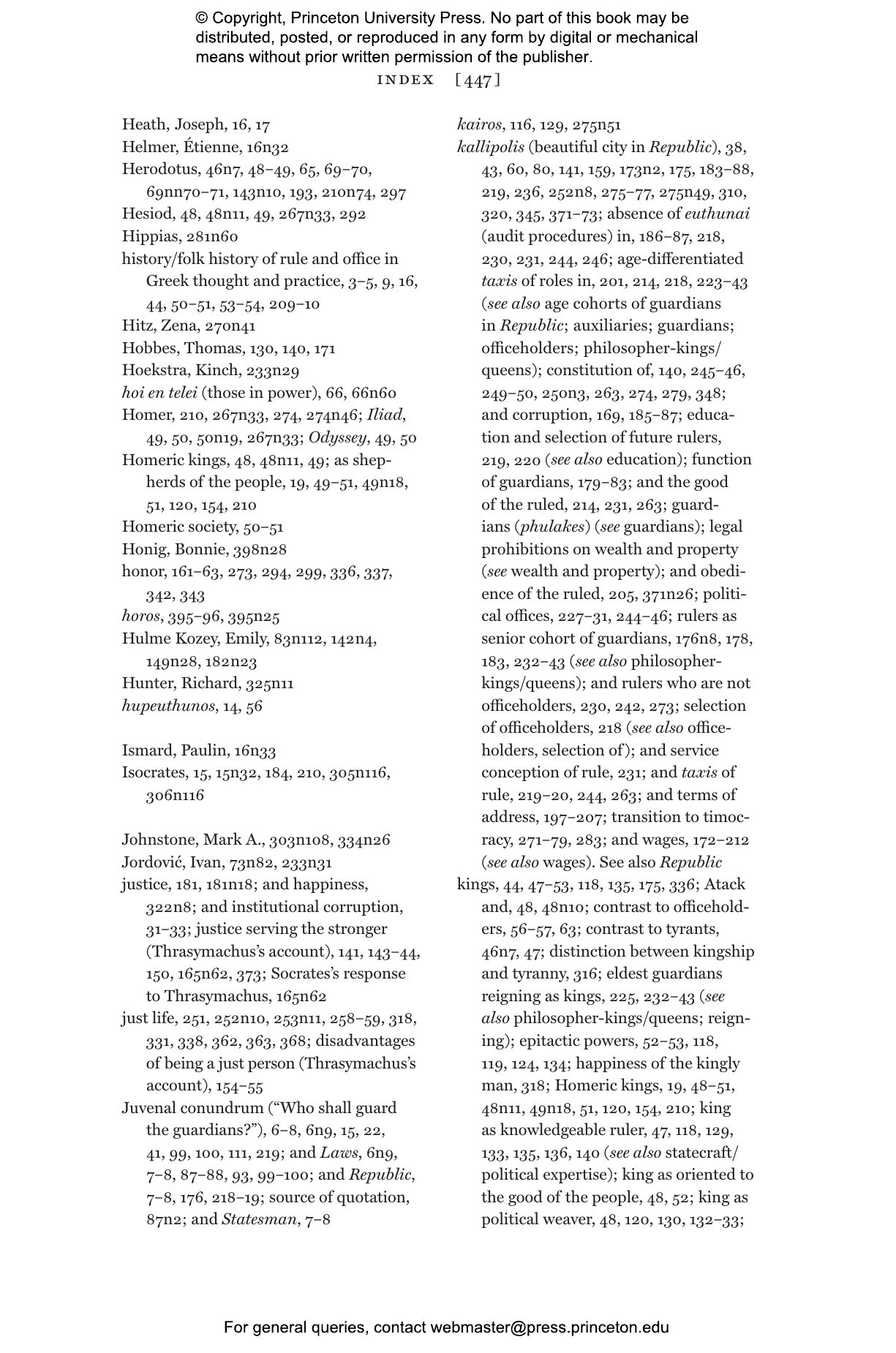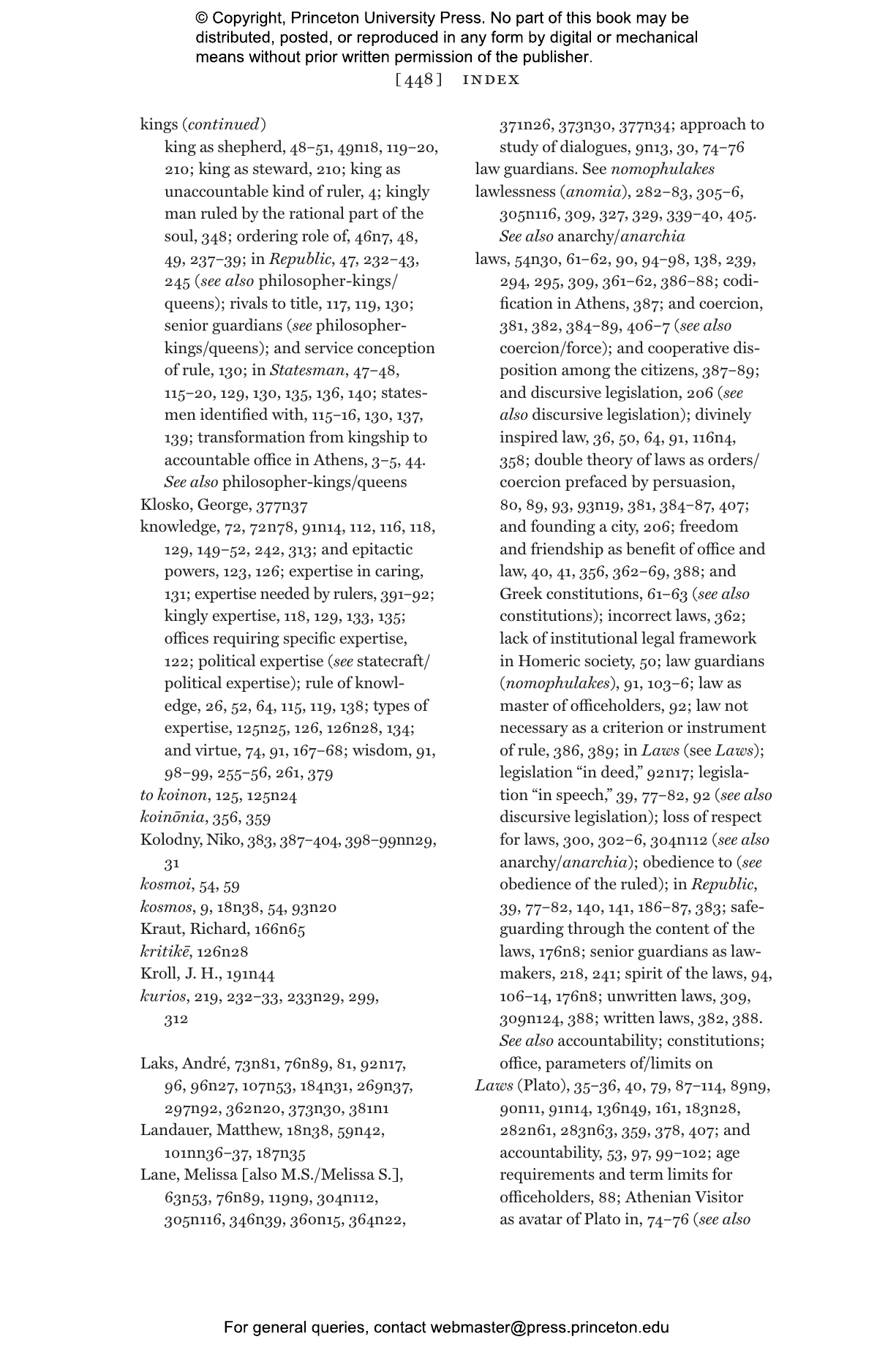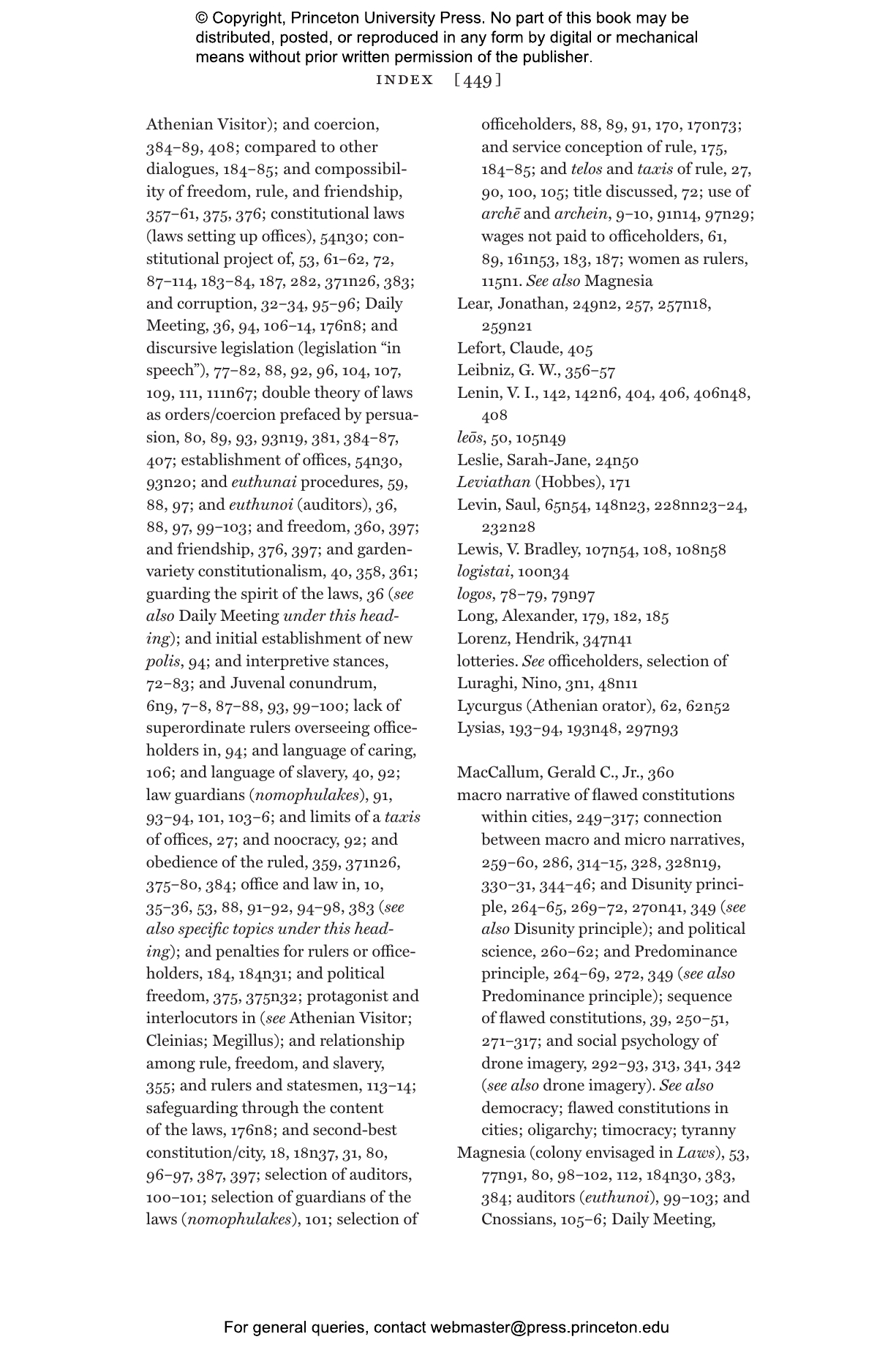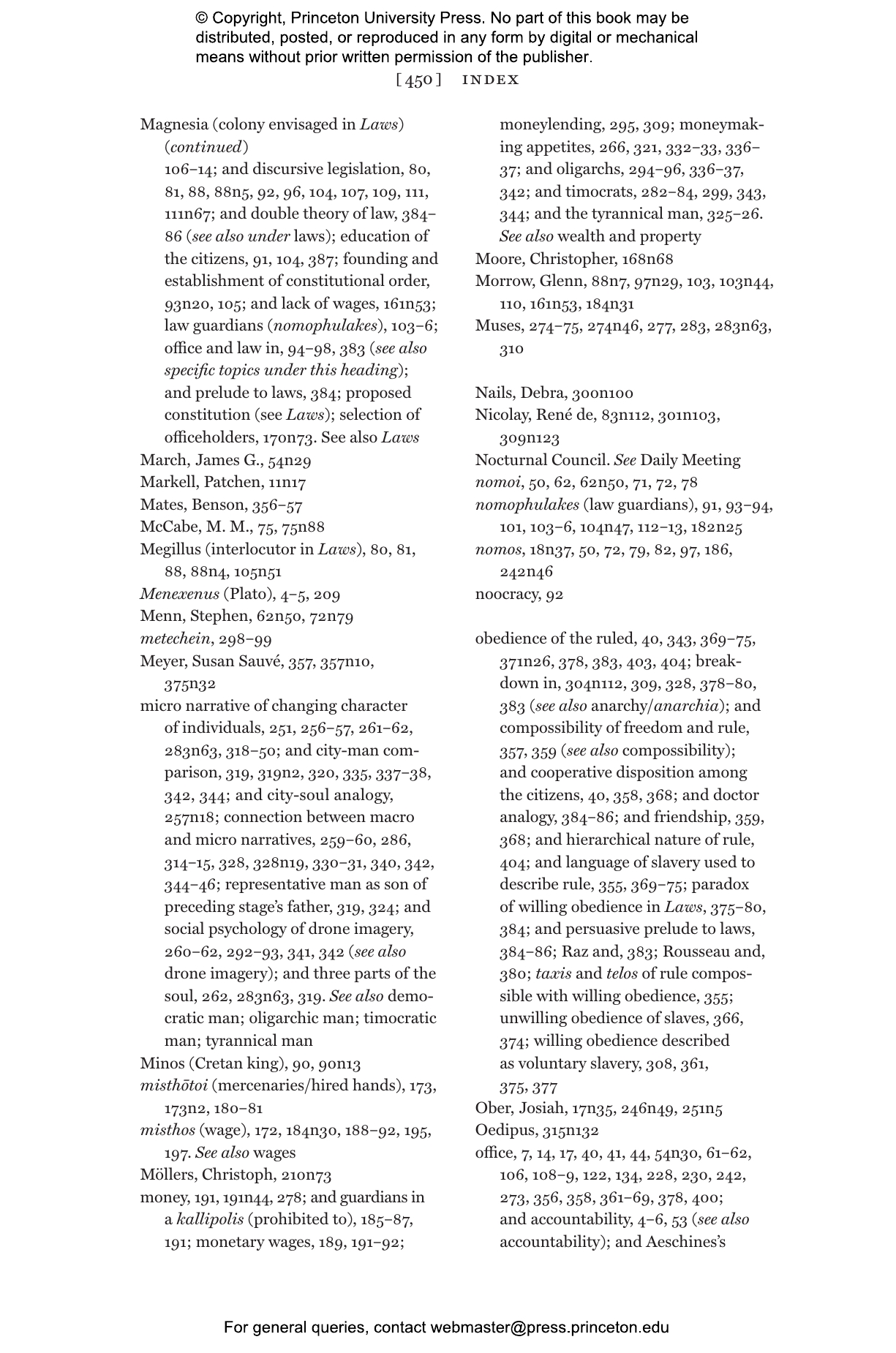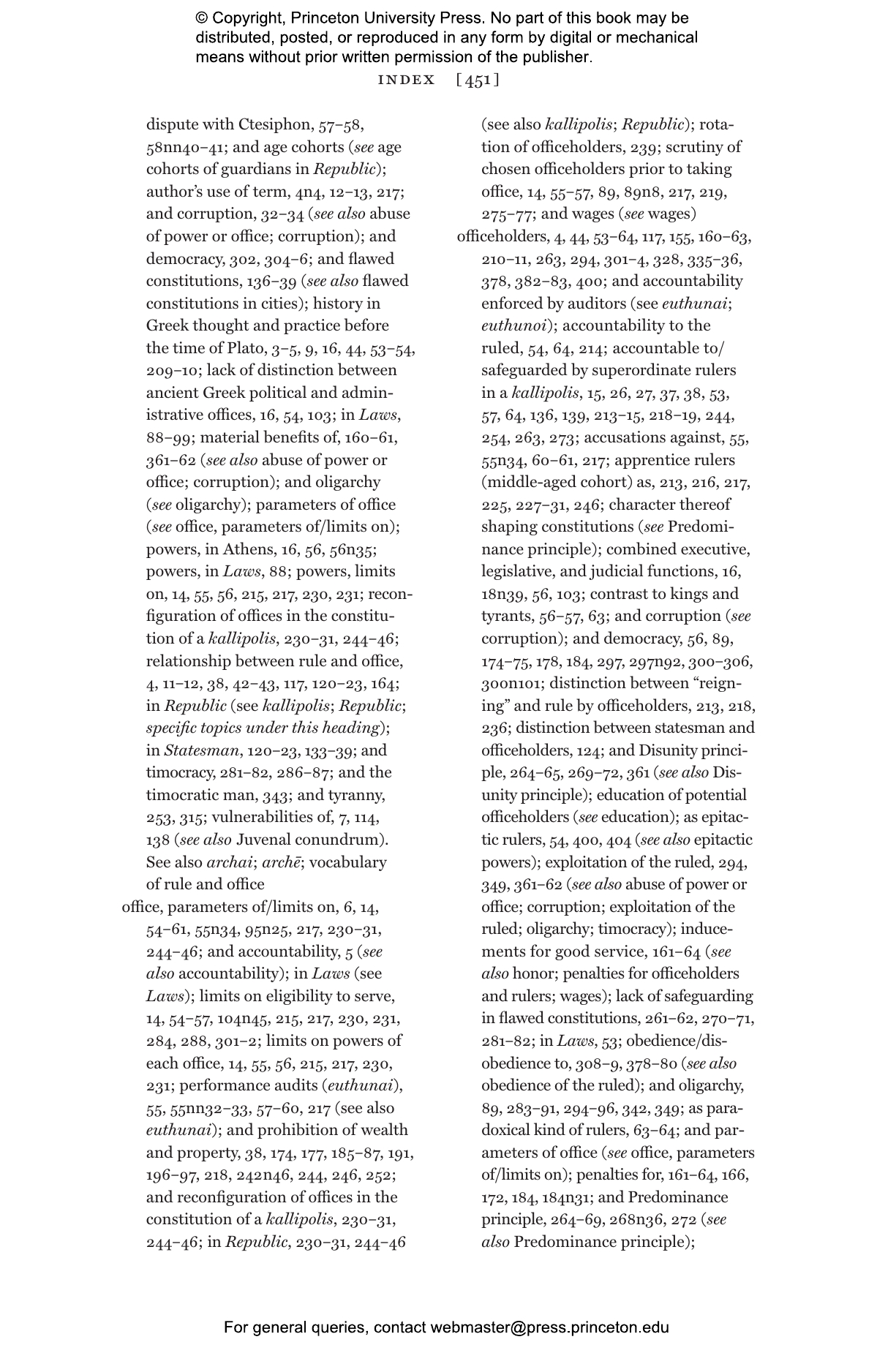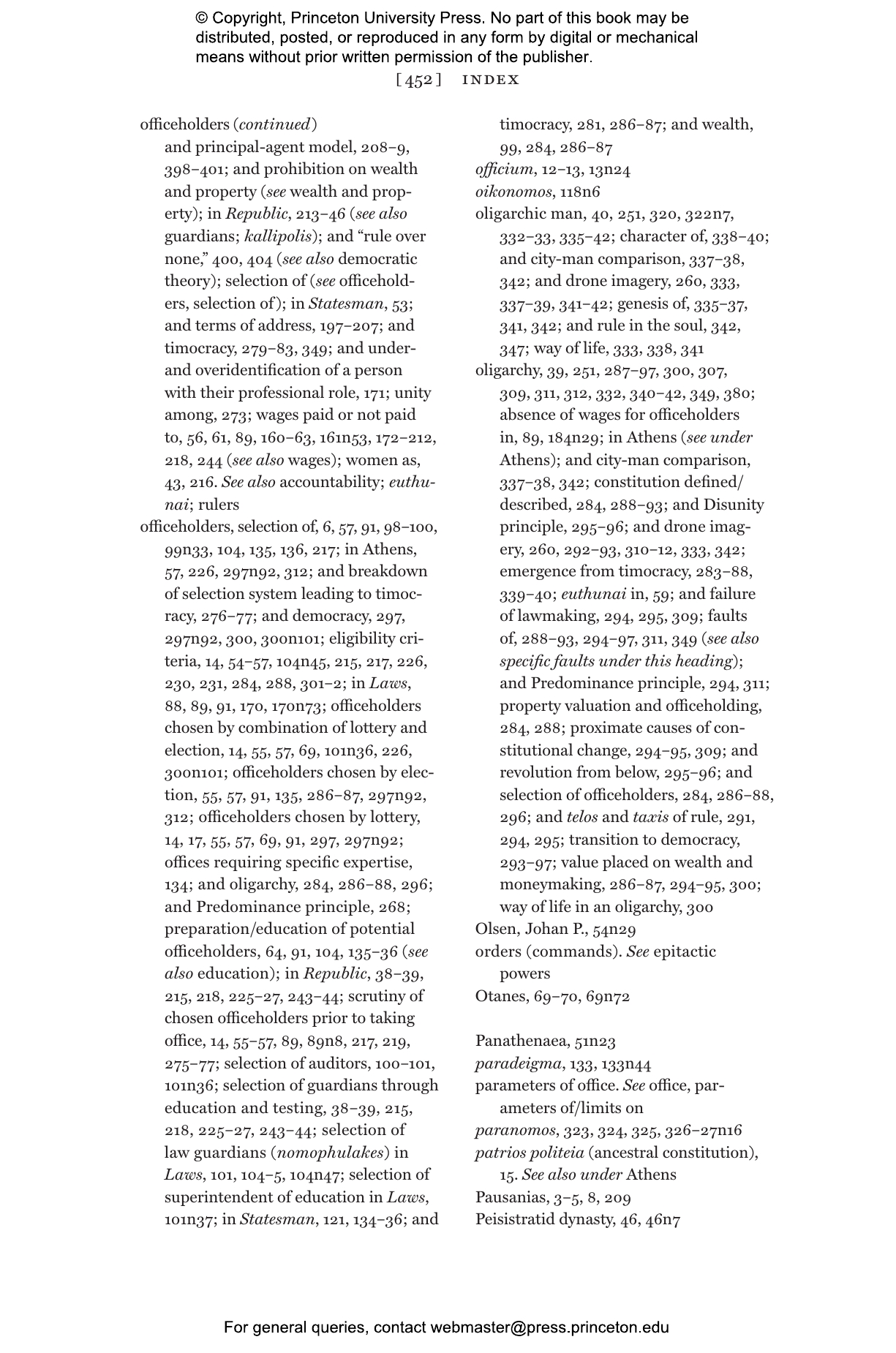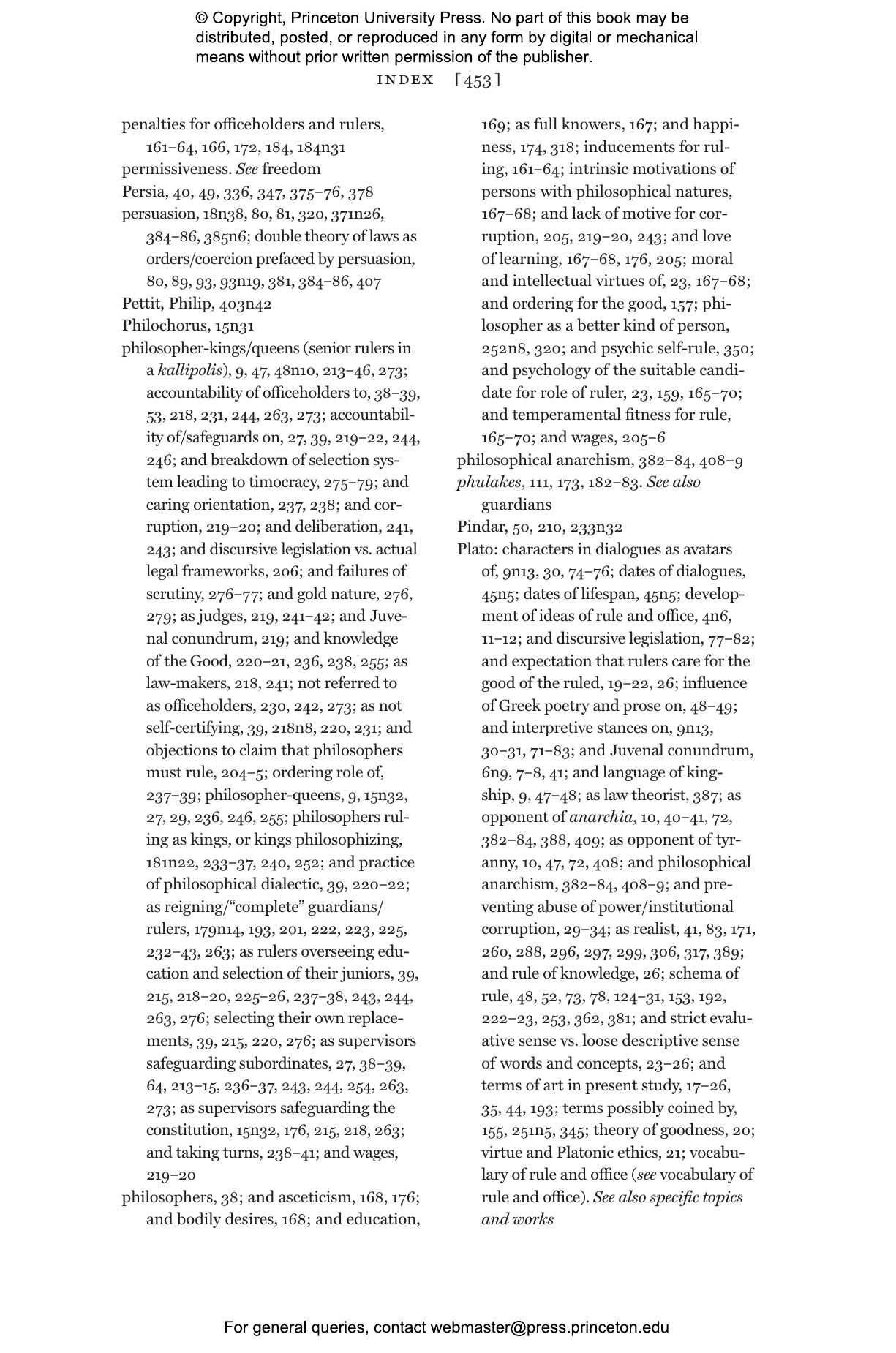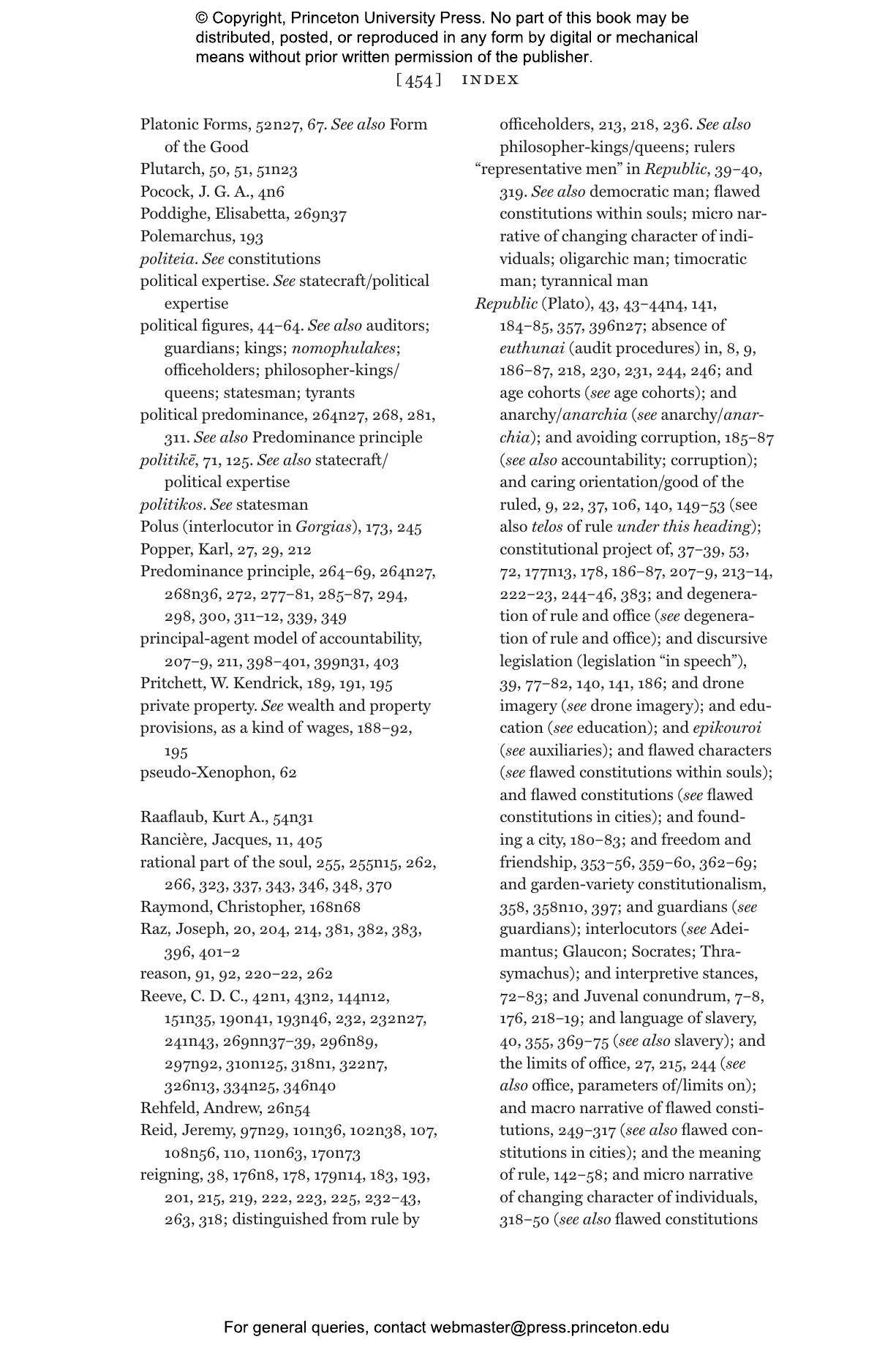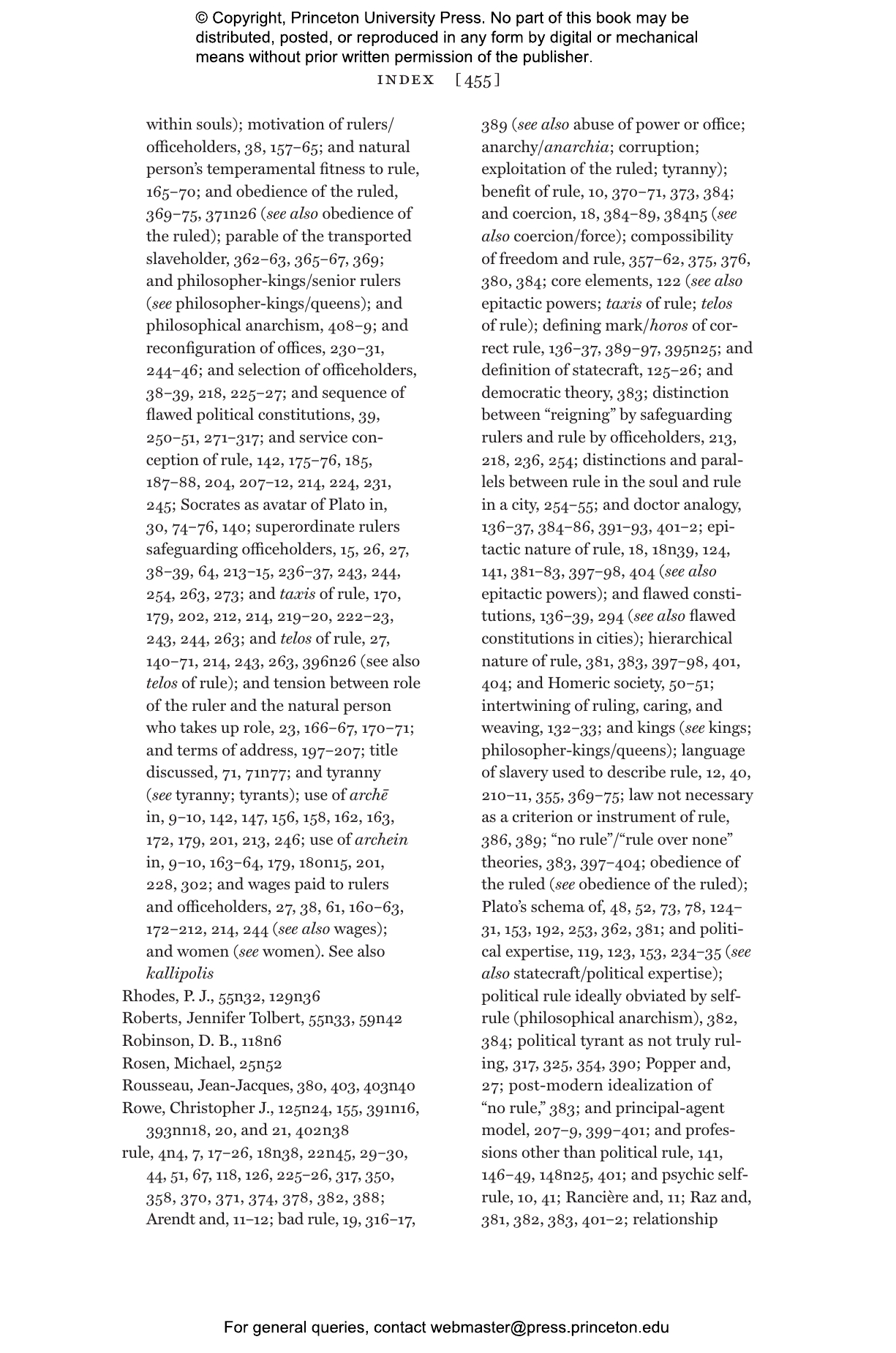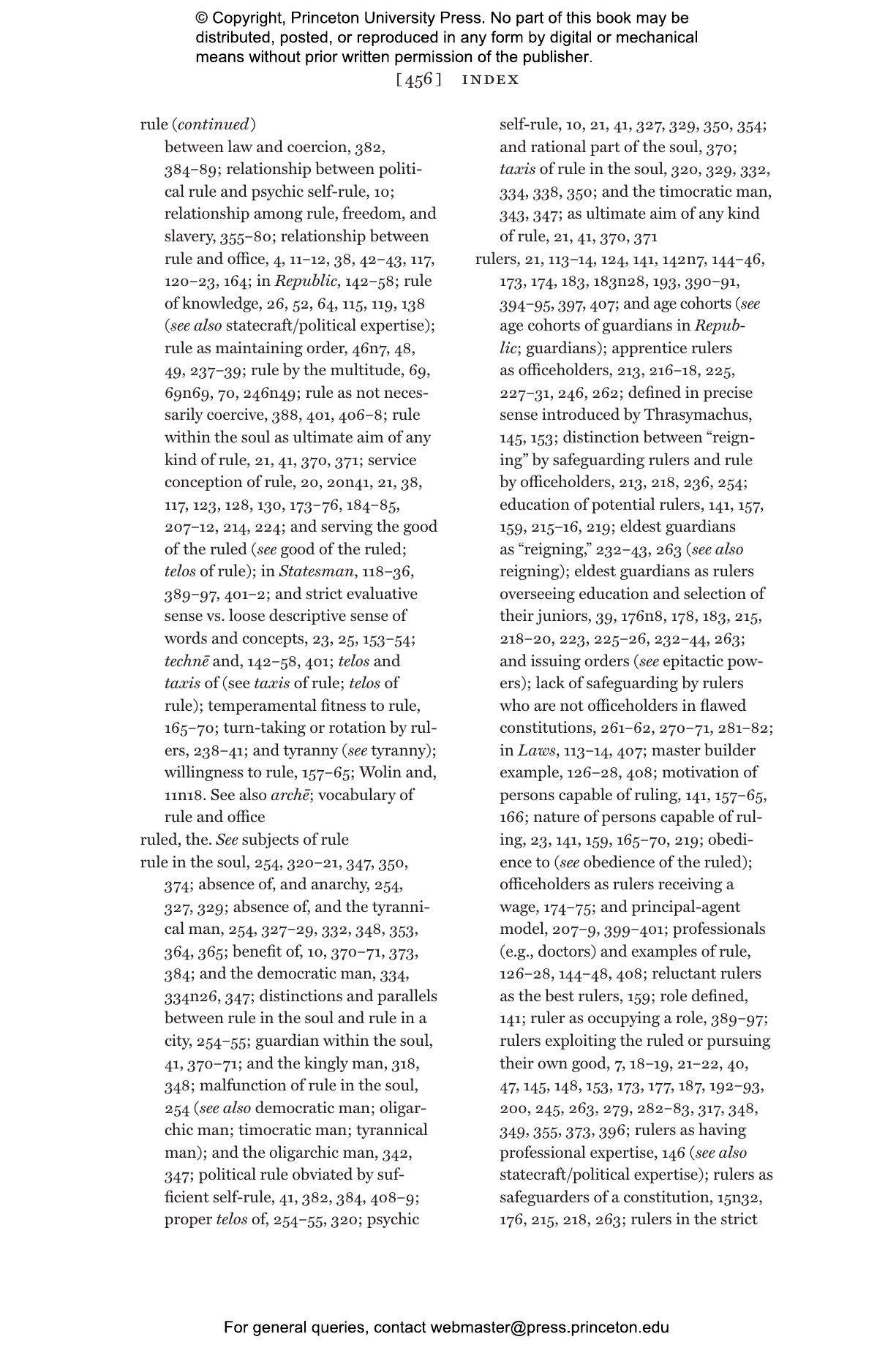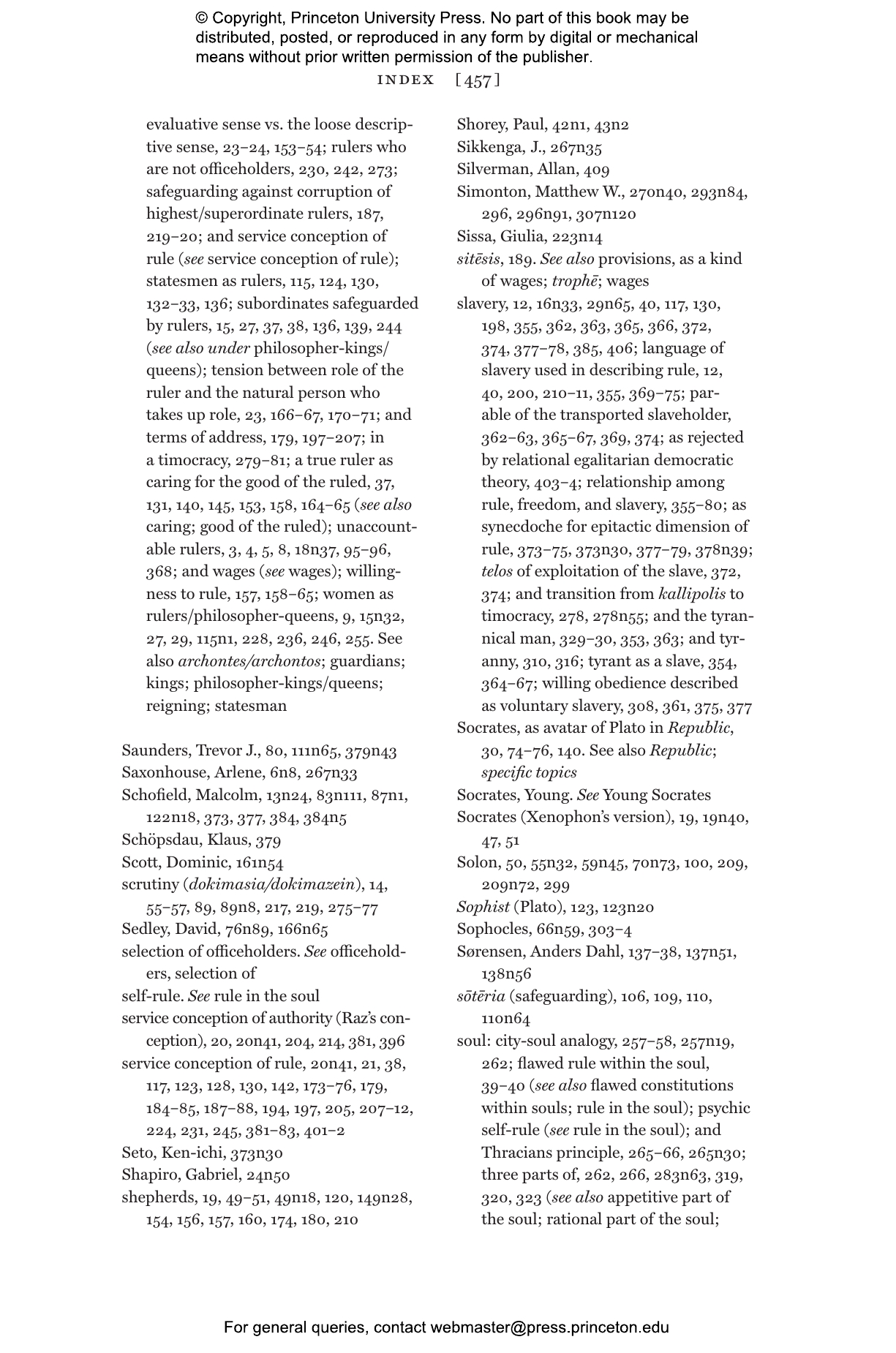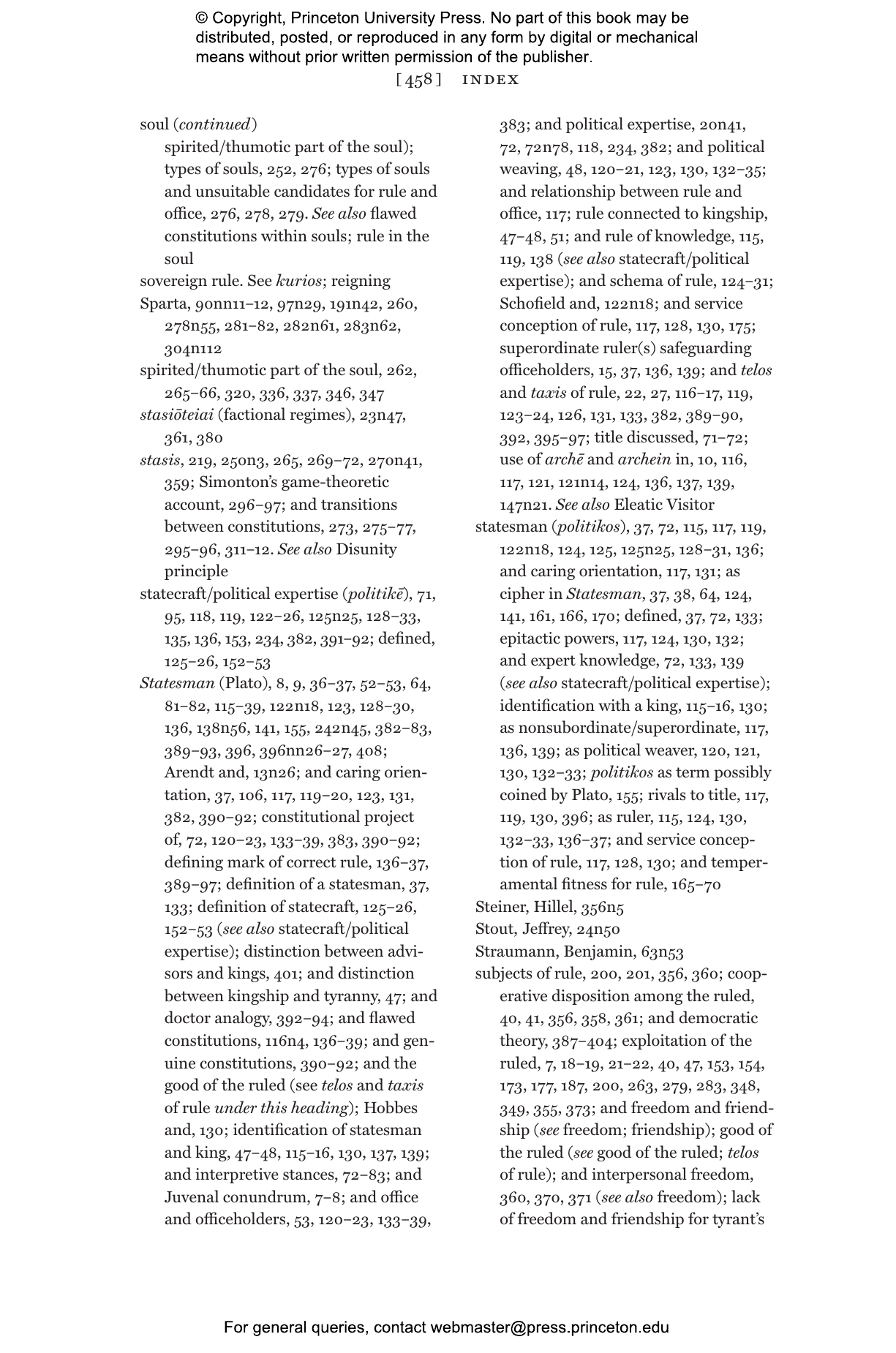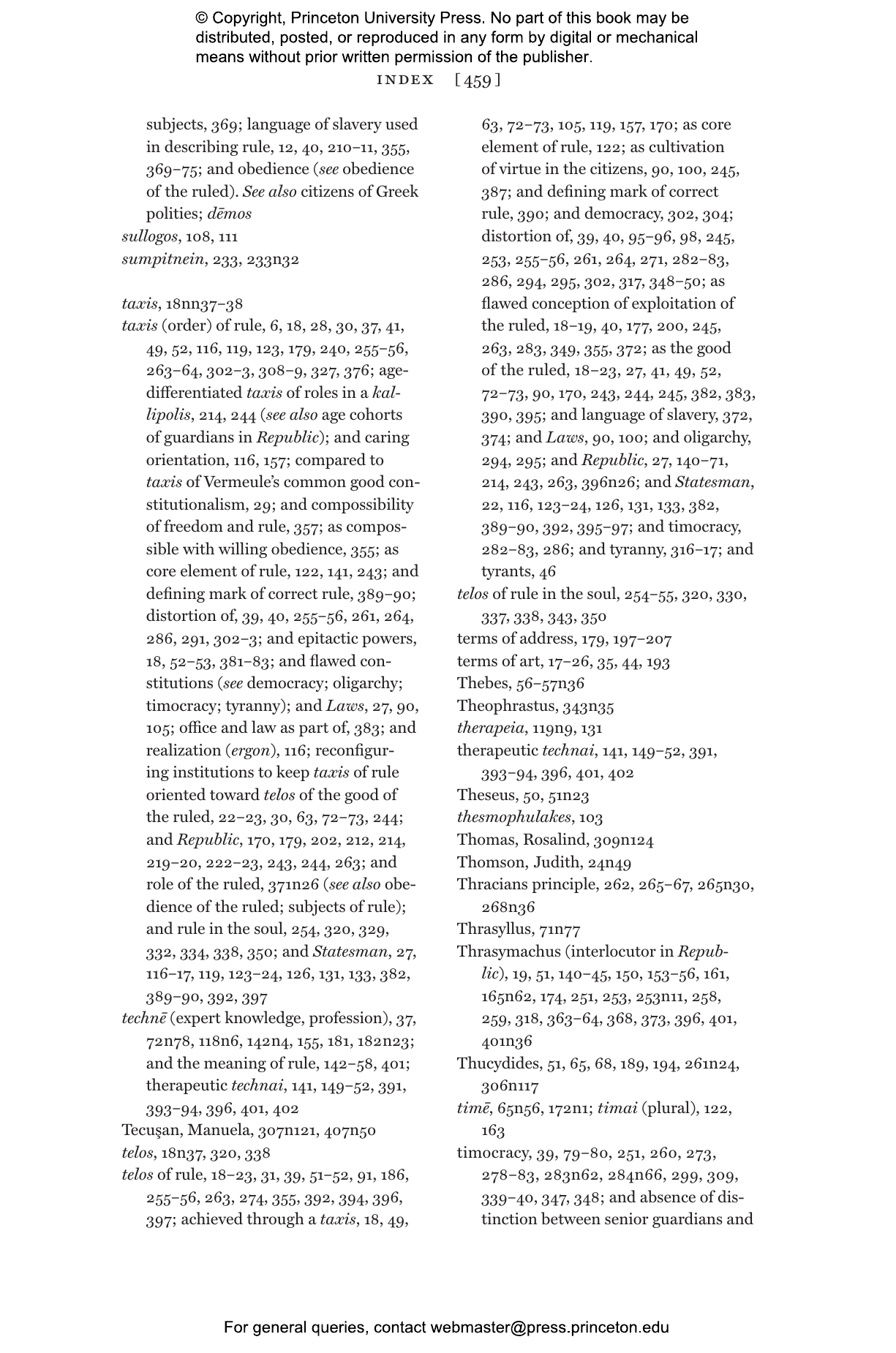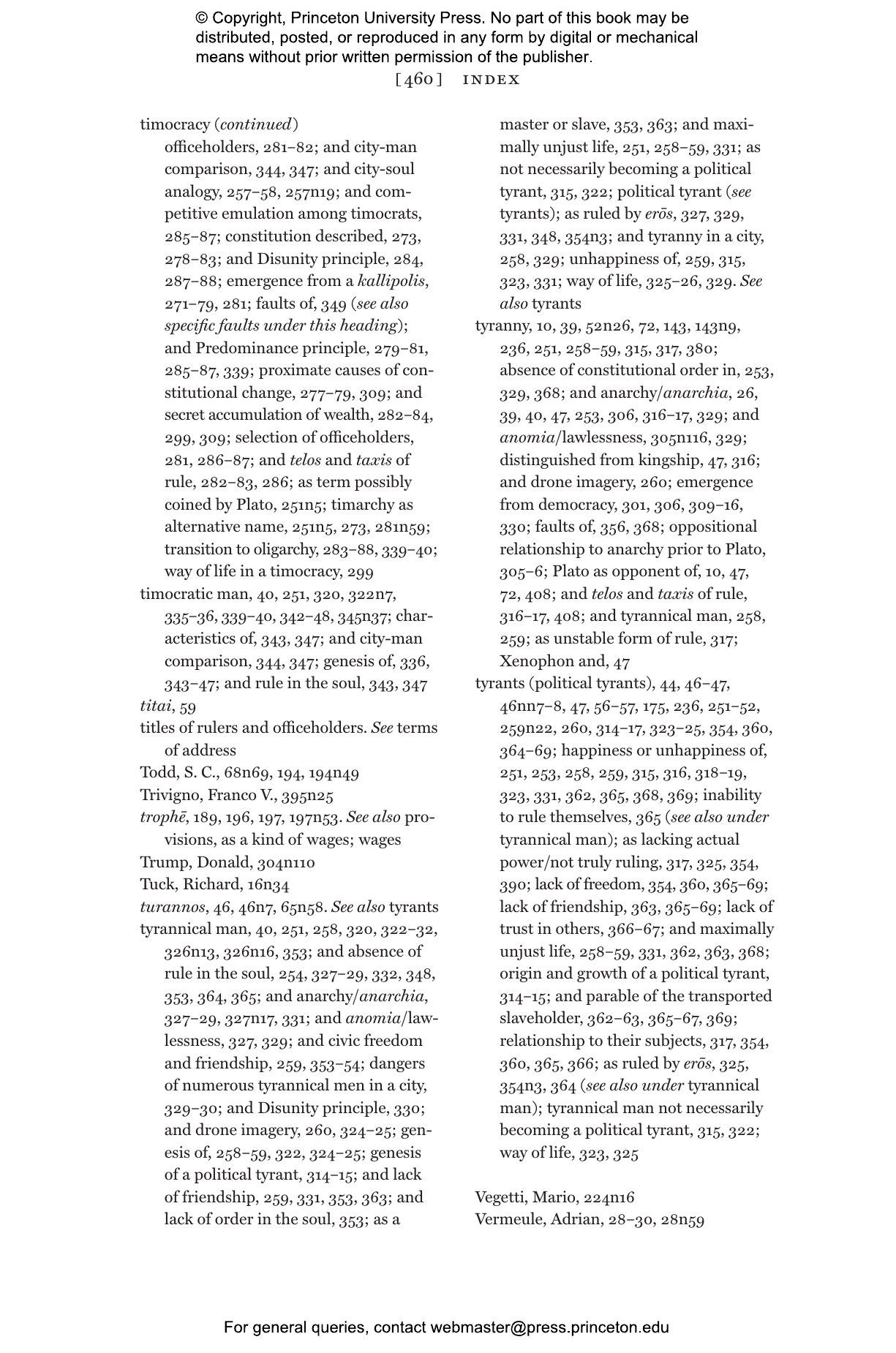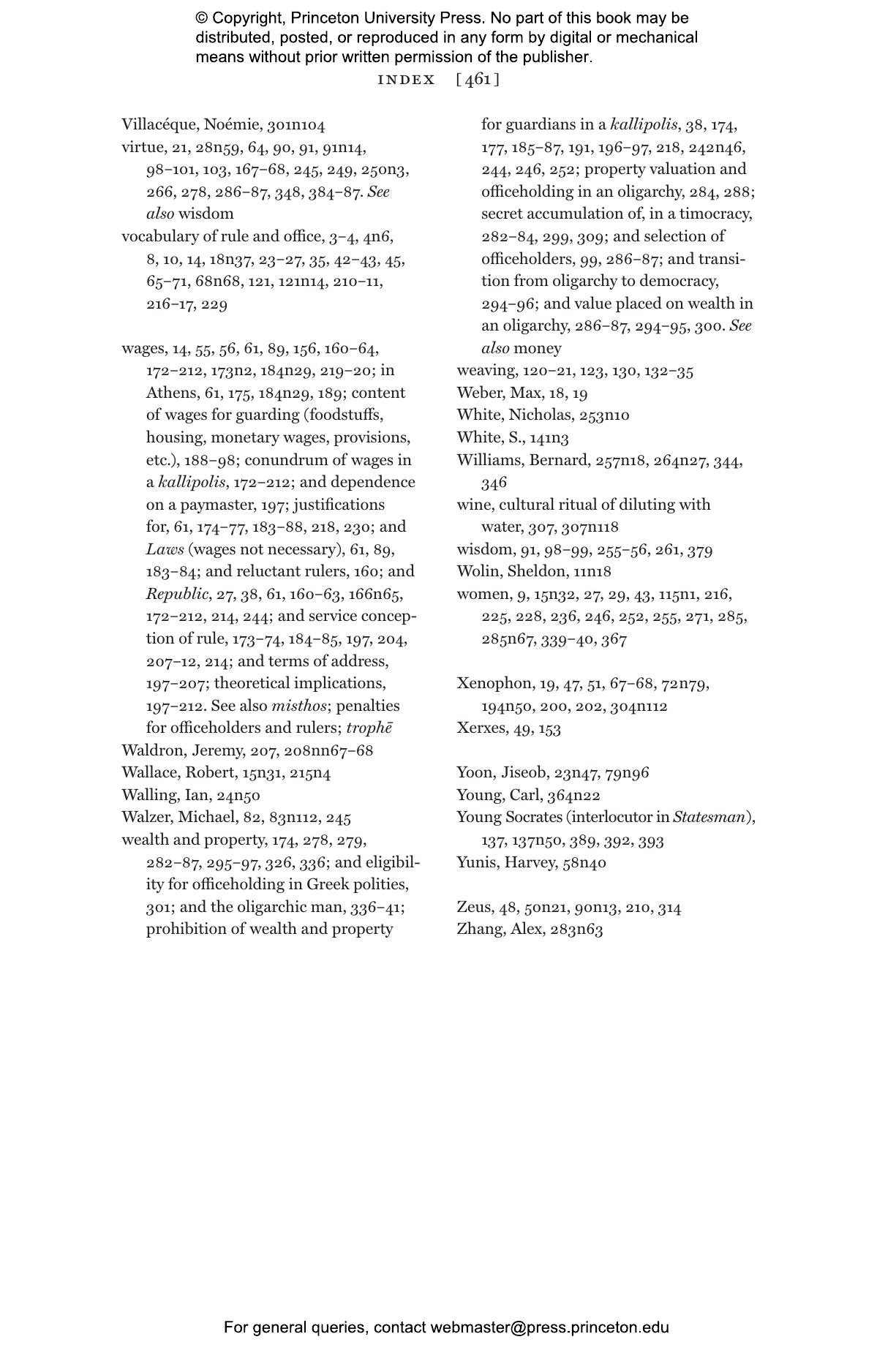Plato famously defends the rule of knowledge. Knowledge, for him, is of the good. But what is rule? In this study, Melissa Lane reveals how political office and rule were woven together in Greek vocabulary and practices that both connected and distinguished between rule in general and office as a constitutionally limited kind of rule in particular. In doing so, Lane shows Plato to have been deeply concerned with the roles and relationships between rulers and ruled. Adopting a longstanding Greek expectation that a ruler should serve the good of the ruled, Plato’s major political dialogues—the Republic, the Statesman, and Laws—explore how different kinds of rule might best serve that good. With this book, Lane offers the first account of the clearly marked vocabulary of offices at the heart of all three of these dialogues, explaining how such offices fit within the broader organization and theorizing of rule.
Lane argues that taking Plato’s interest in rule and office seriously reveals tyranny as ultimately a kind of anarchy, lacking the order as well as the purpose of rule. When we think of tyranny in this way, we see how Plato invokes rule and office as underpinning freedom and friendship as political values, and how Greek slavery shaped Plato’s account of freedom. Reading Plato both in the Greek context and in dialogue with contemporary thinkers, Lane argues that rule and office belong at the center of Platonic, Greek, and contemporary political thought.
Melissa Lane is the Class of 1943 Professor of Politics and a faculty member of the Program in Classical Philosophy at Princeton University. She is also the 50th Professor of Rhetoric at Gresham College. Her books include Eco-Republic: What the Ancients Can Teach Us about Ethics, Virtue, and Sustainable Living and The Birth of Politics: Eight Greek and Roman Political Ideas and Why They Matter (both Princeton) and Method and Politics in Plato’s “Statesman.”
"[A] meticulous new analysis of Plato’s constitutionalism. . . . With the appearance of Melissa Lane’s authoritative Of Rule and Office, debate over the evolution of Plato’s discussion of the vulnerabilities of political office and the various ways in which rule and office might be understood must be nearly at an end."—Andrew David Irvine, Times Literary Supplement
"Written with extraordinary scrupulousness. . . . With [Of Rule and Office], Plato’s ideas of the political are put firmly on the map."—Christopher Rowe, Mind
"A delight to read."—Patrick Rioridan, The Heythrop Journal
"An original contribution to Platonic scholarship. . . . [Of Rule and Office] is a book worth reading, and in full."—Geoff Bakewell, Bryn Mawr Classical Review
"Excellent. . . . In this monumental study, Lane offers a sophisticated and insightful reinterpretation of Plato’s political thinking."—Daniel Vazquez, Greece & Rome
“Plato the constitutionalist is an unfamiliar figure. In Melissa Lane’s major new contribution to the understanding of ancient Greek political thought, however, even the Republic’s philosopher kings and queens turn out not to be self-certifying absolute rulers, but principally custodians of safeguarding processes for the rigorous selection and training of other officers that they themselves have successfully undergone. Of Rule and Office makes Plato’s explorations of the accountability of government in Republic, Statesman, and Laws weighty contenders, in searching scholarly debate of exemplary courtesy, with those current in contemporary political theorizing.”—Malcolm Schofield, author of Plato: Political Philosophy
“This compelling and contributive work revises the early history of constitutionalism through theoretically bold and analytically careful explorations of the centrality of rule as office to a wide array of antique philosophical, historical, dramatic, and oratorical sources, with special focus on Plato's Republic, Statesman, and Laws.”—Jill Frank, Cornell University
“This is a stimulating and engagingly written work that offers a new understanding of Greek ideas of public offices and ruling. A significant contribution to the field.”—Sara Forsdyke, University of Michigan
